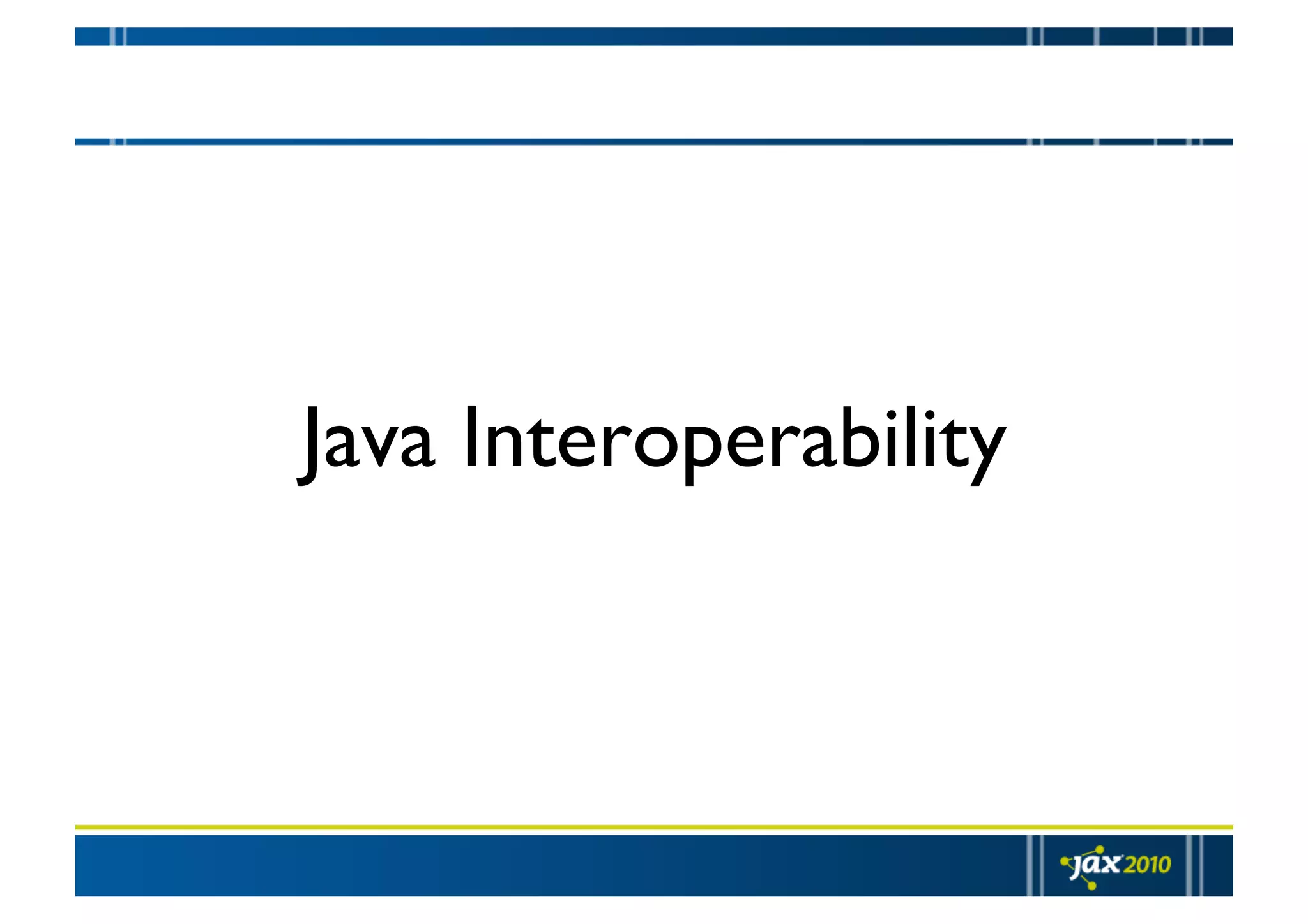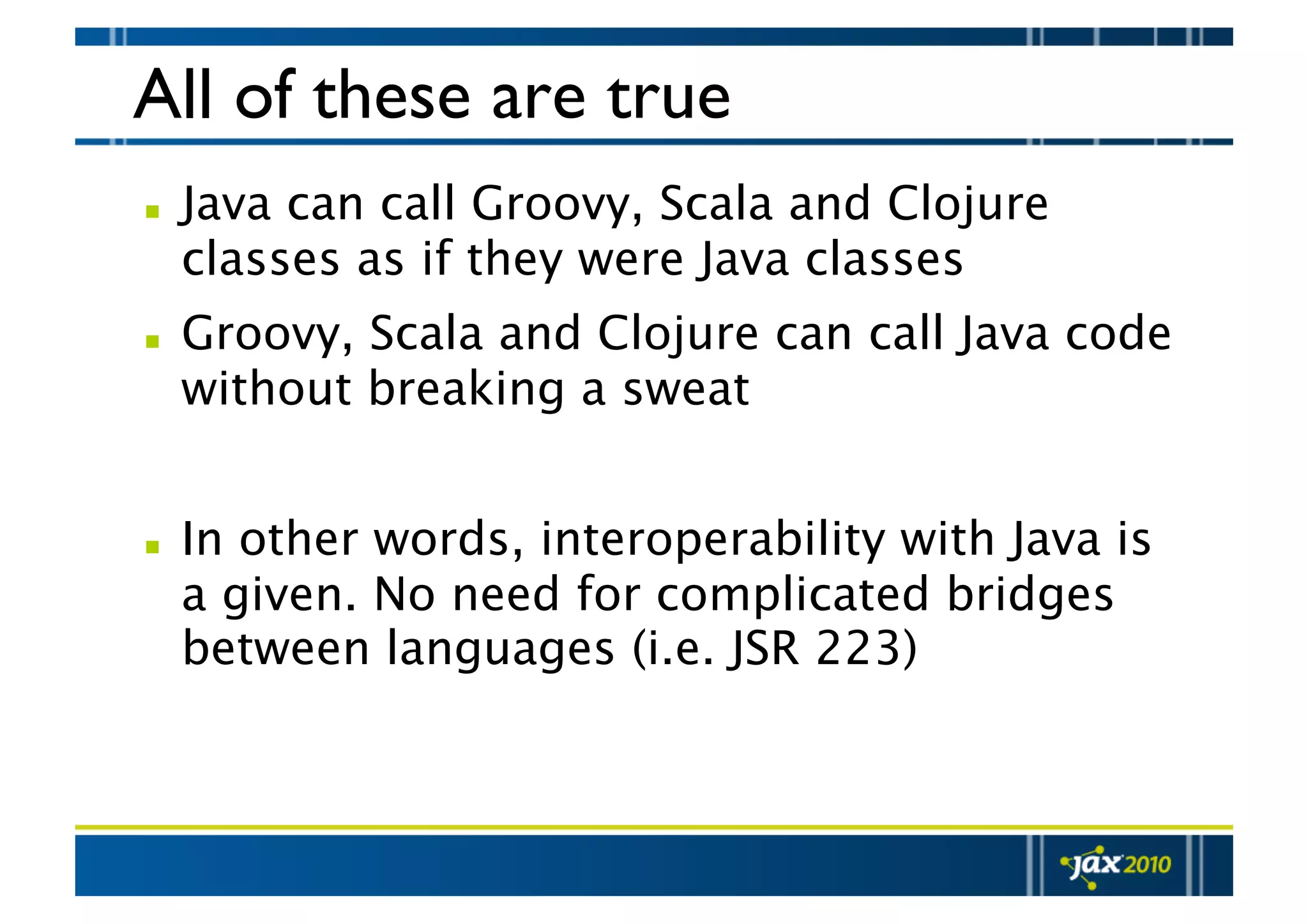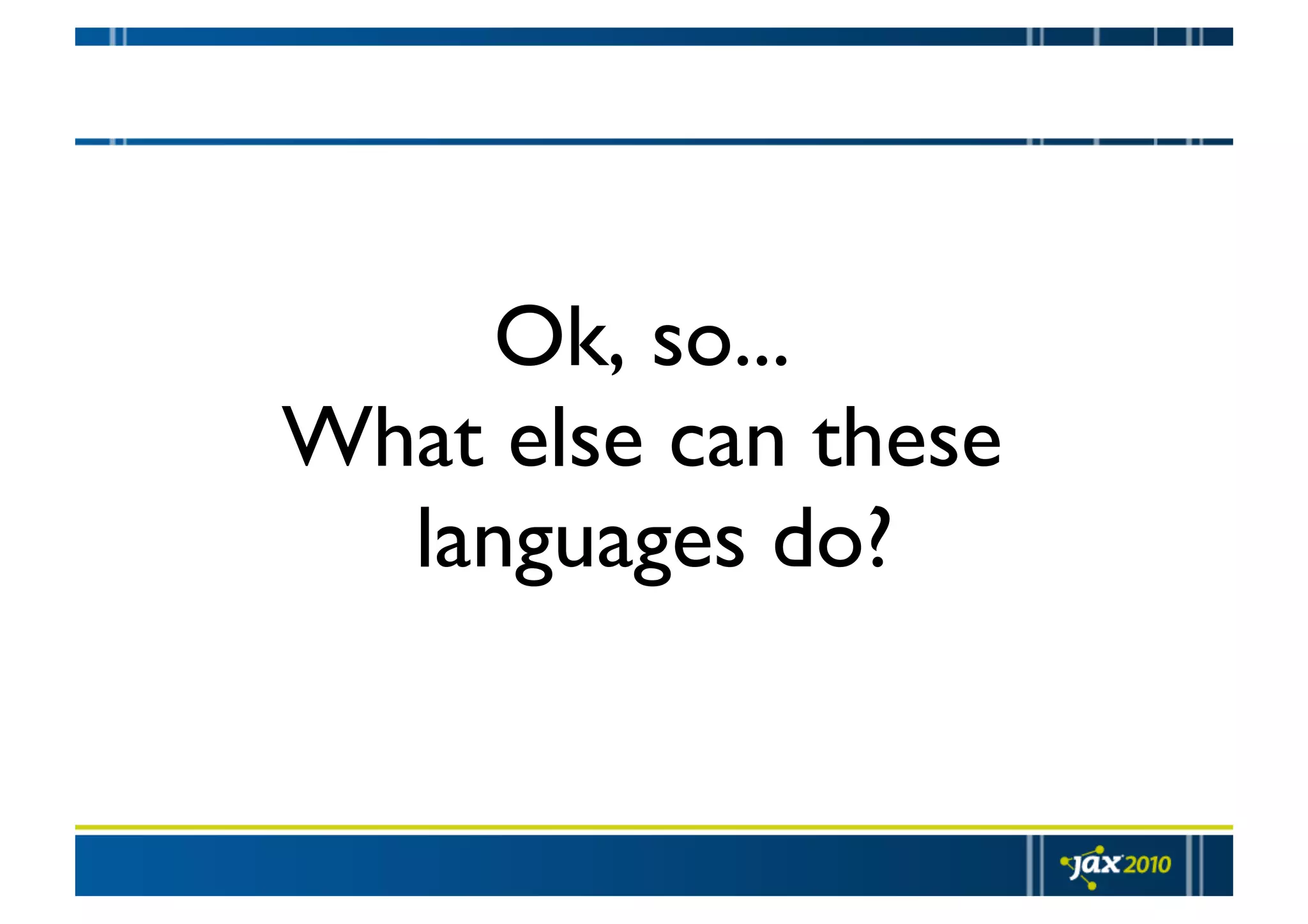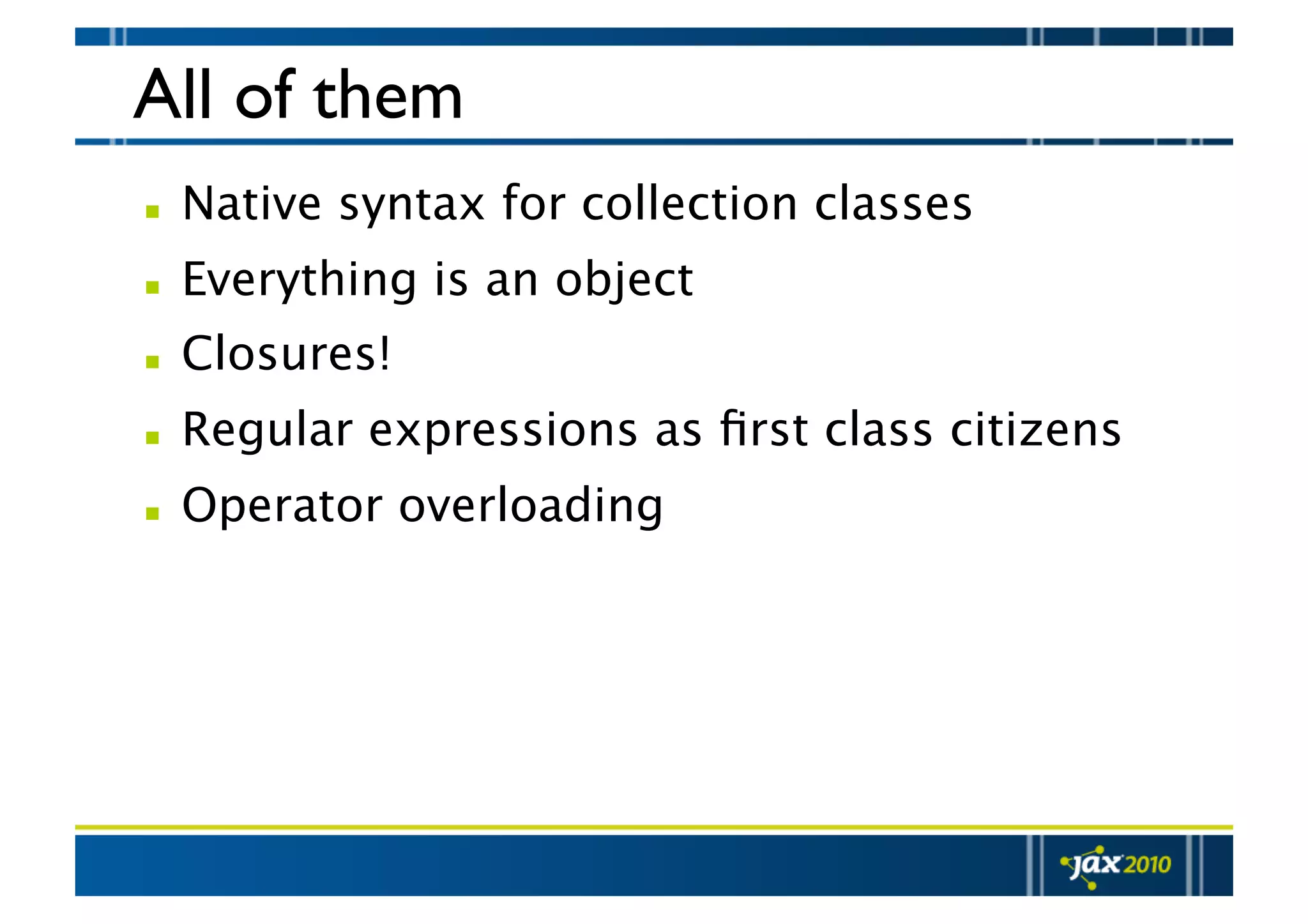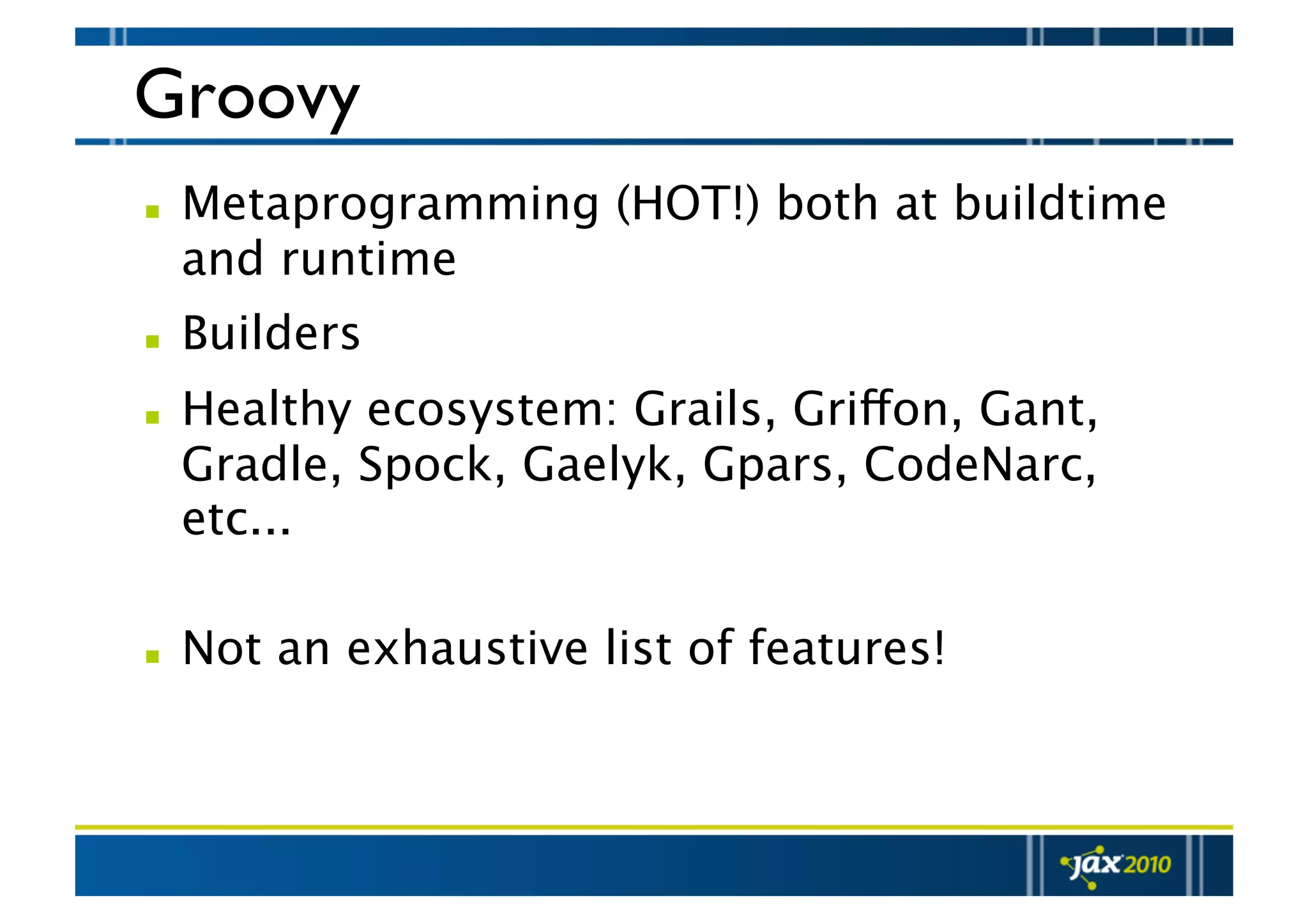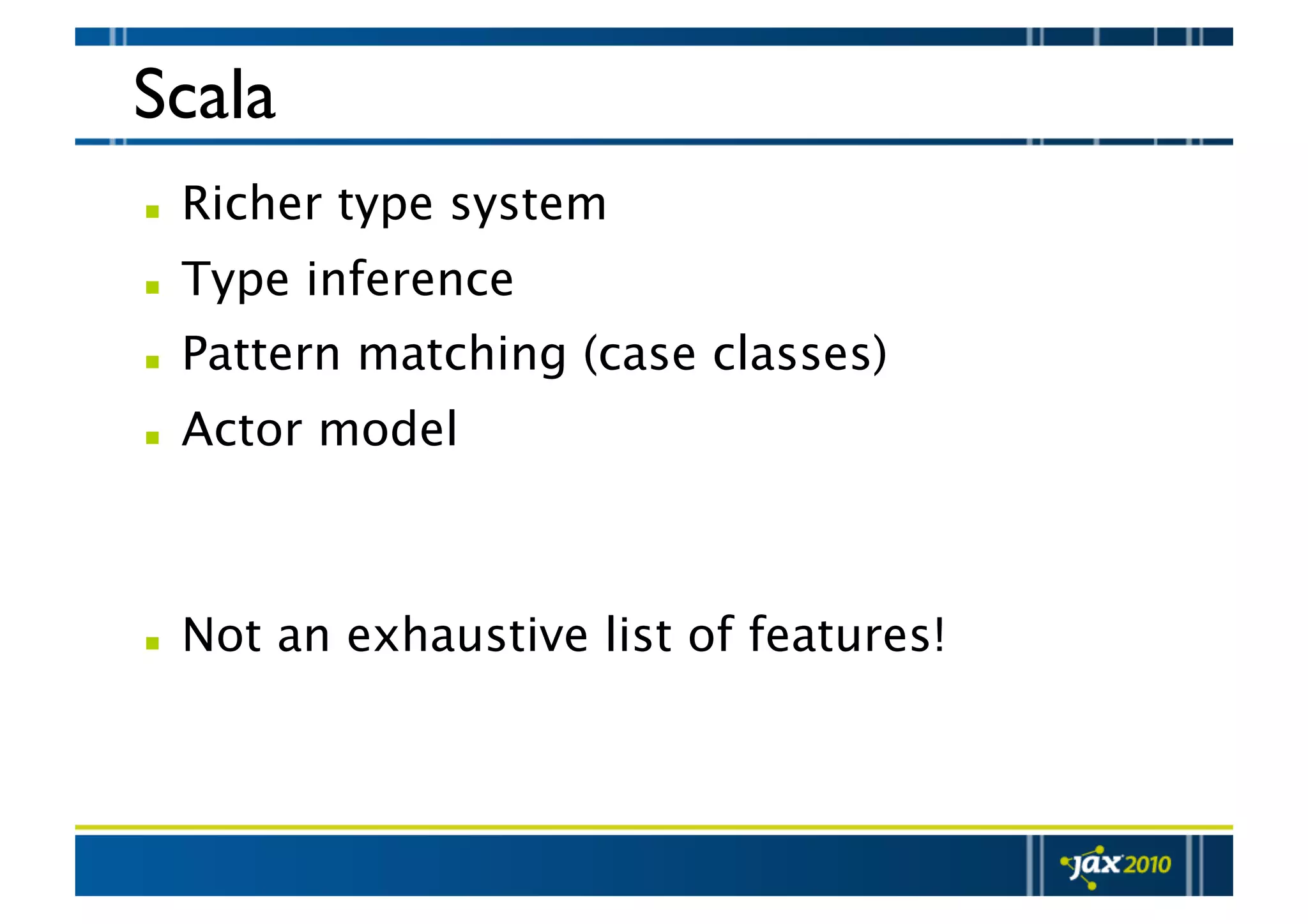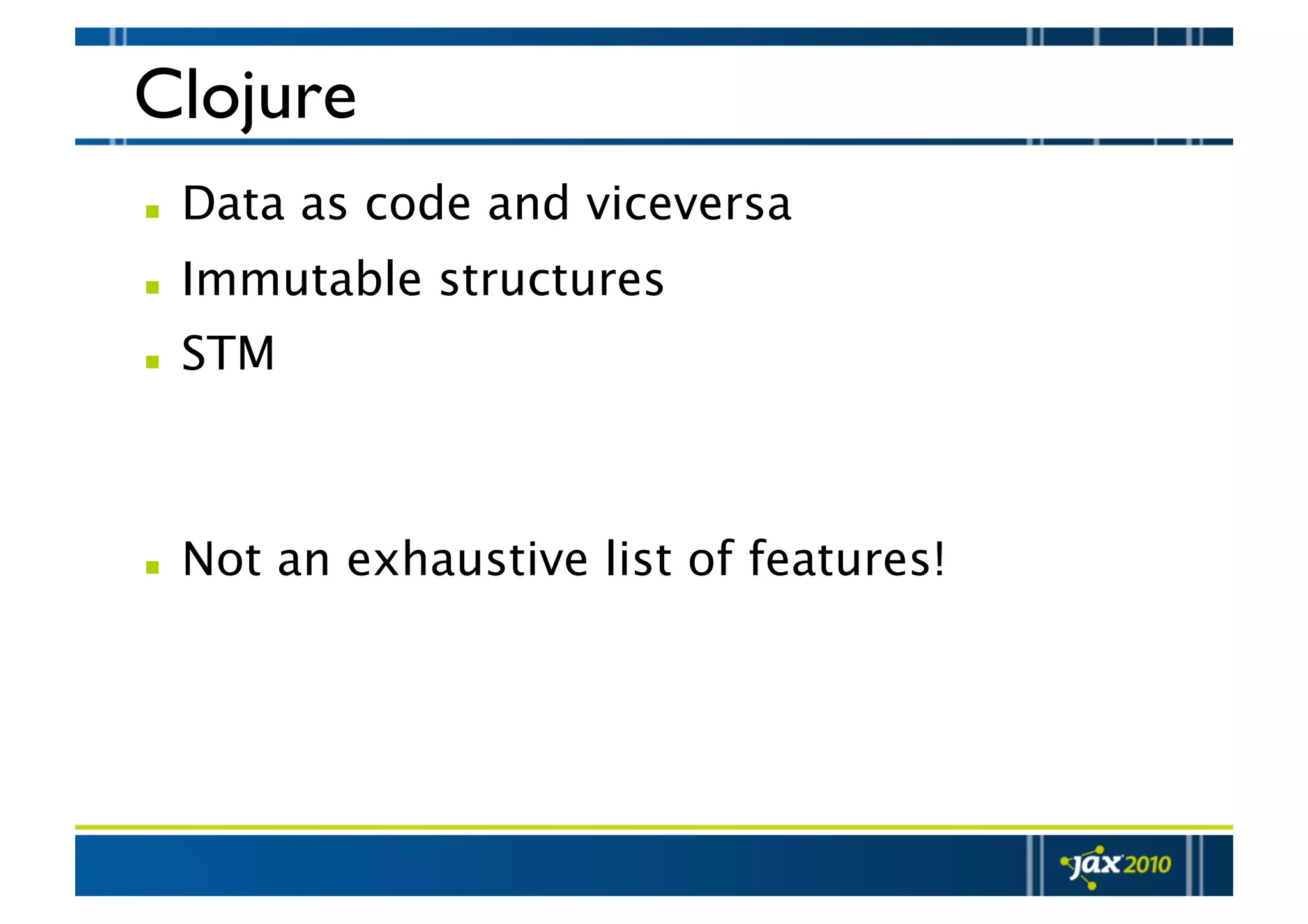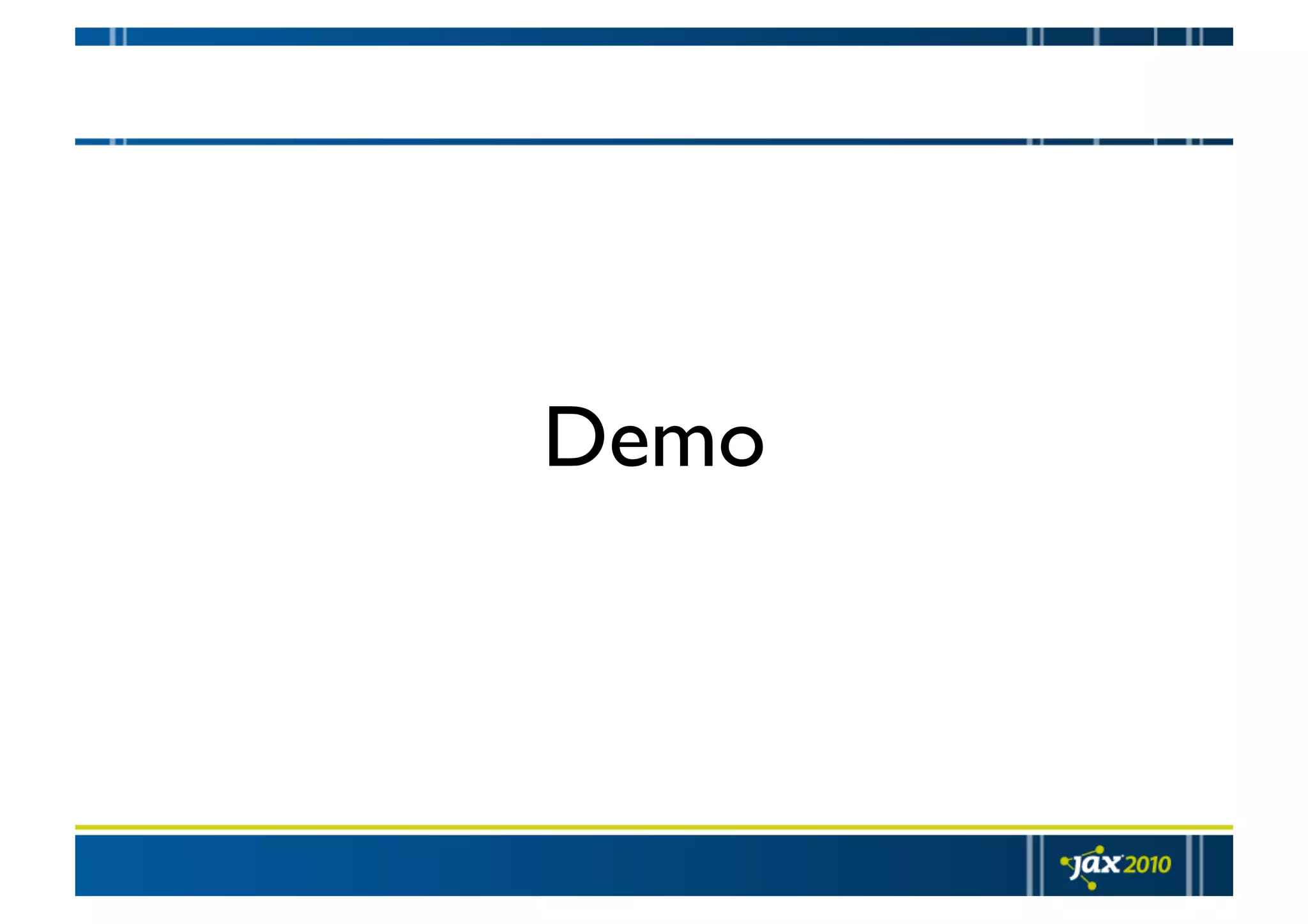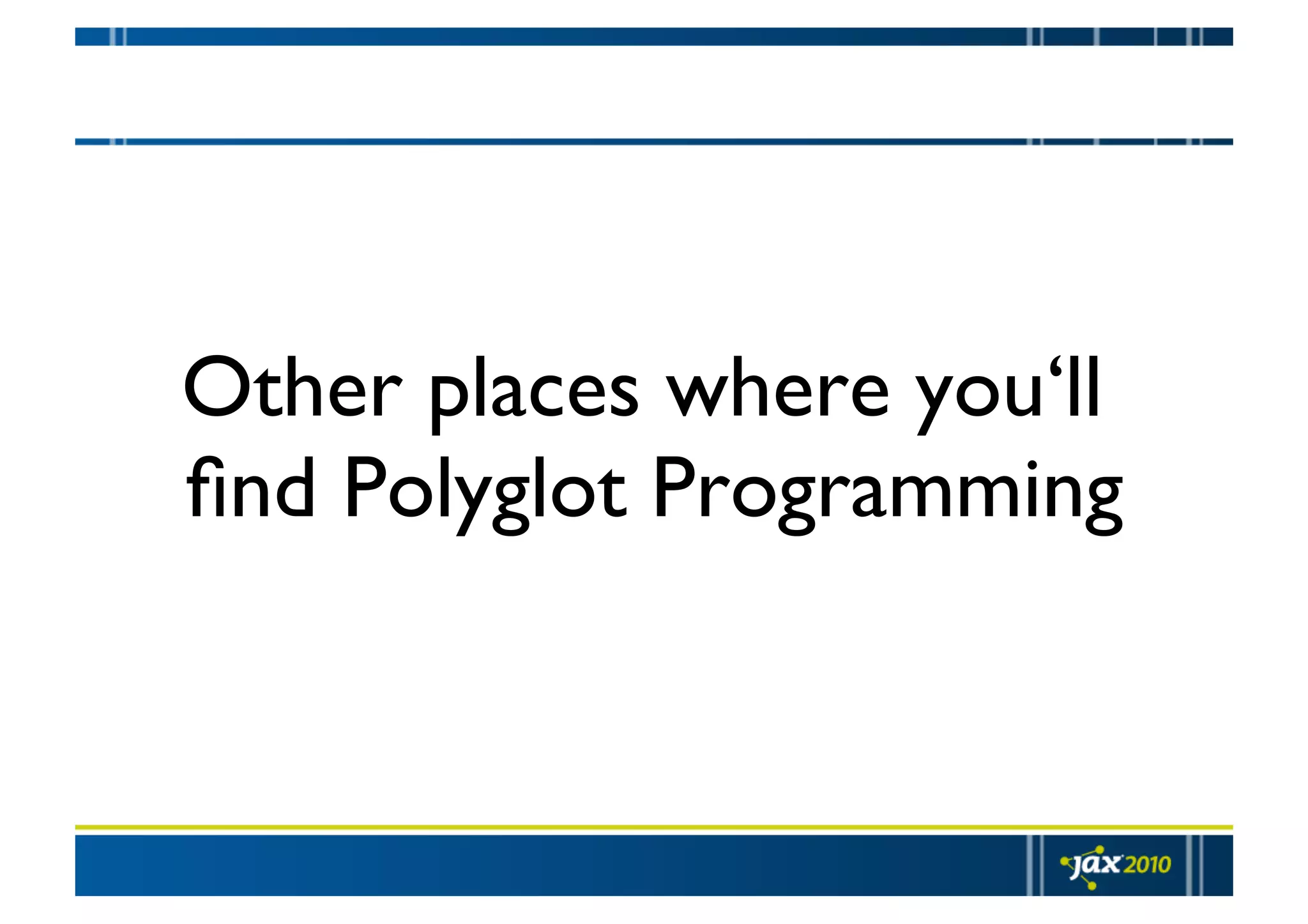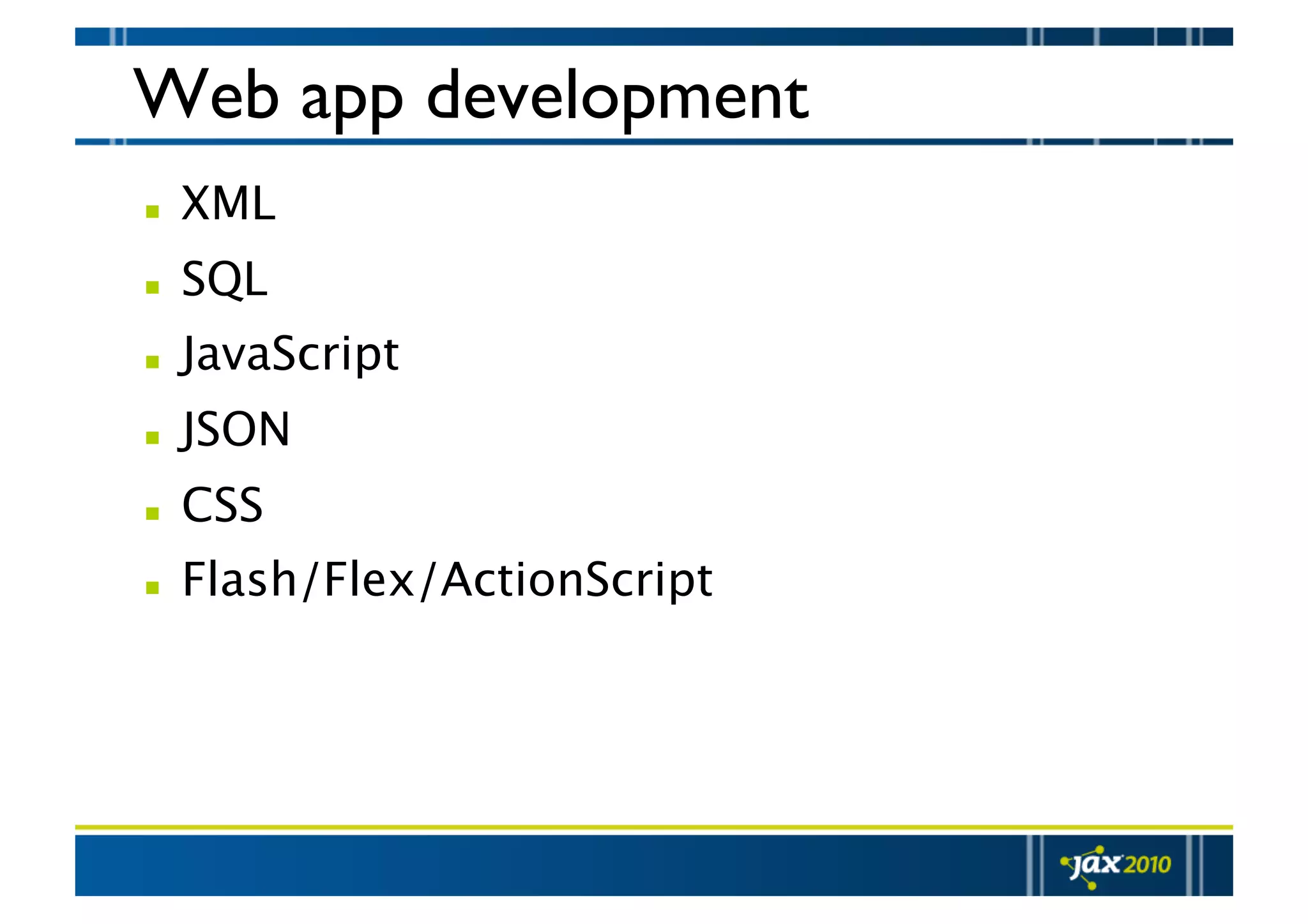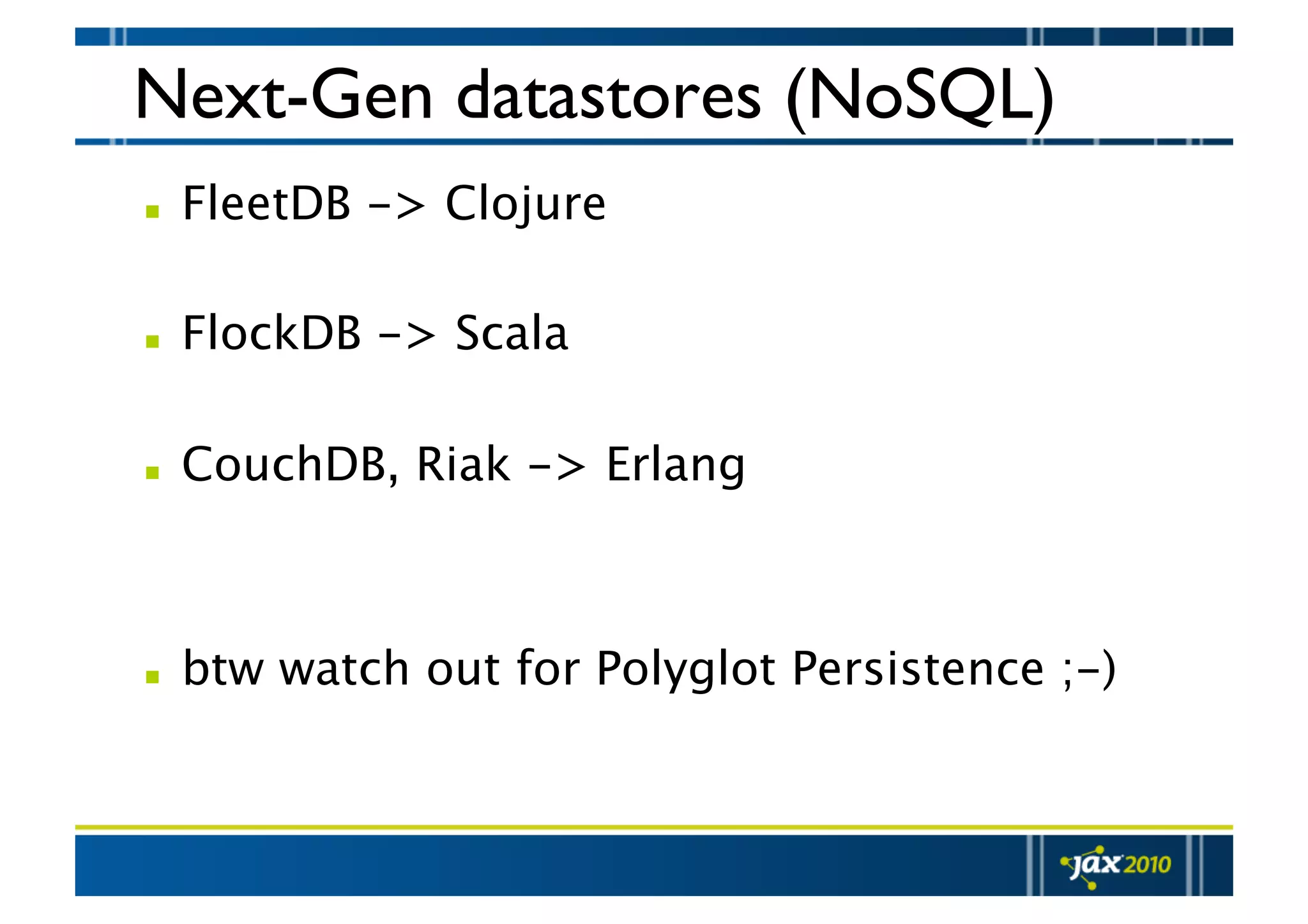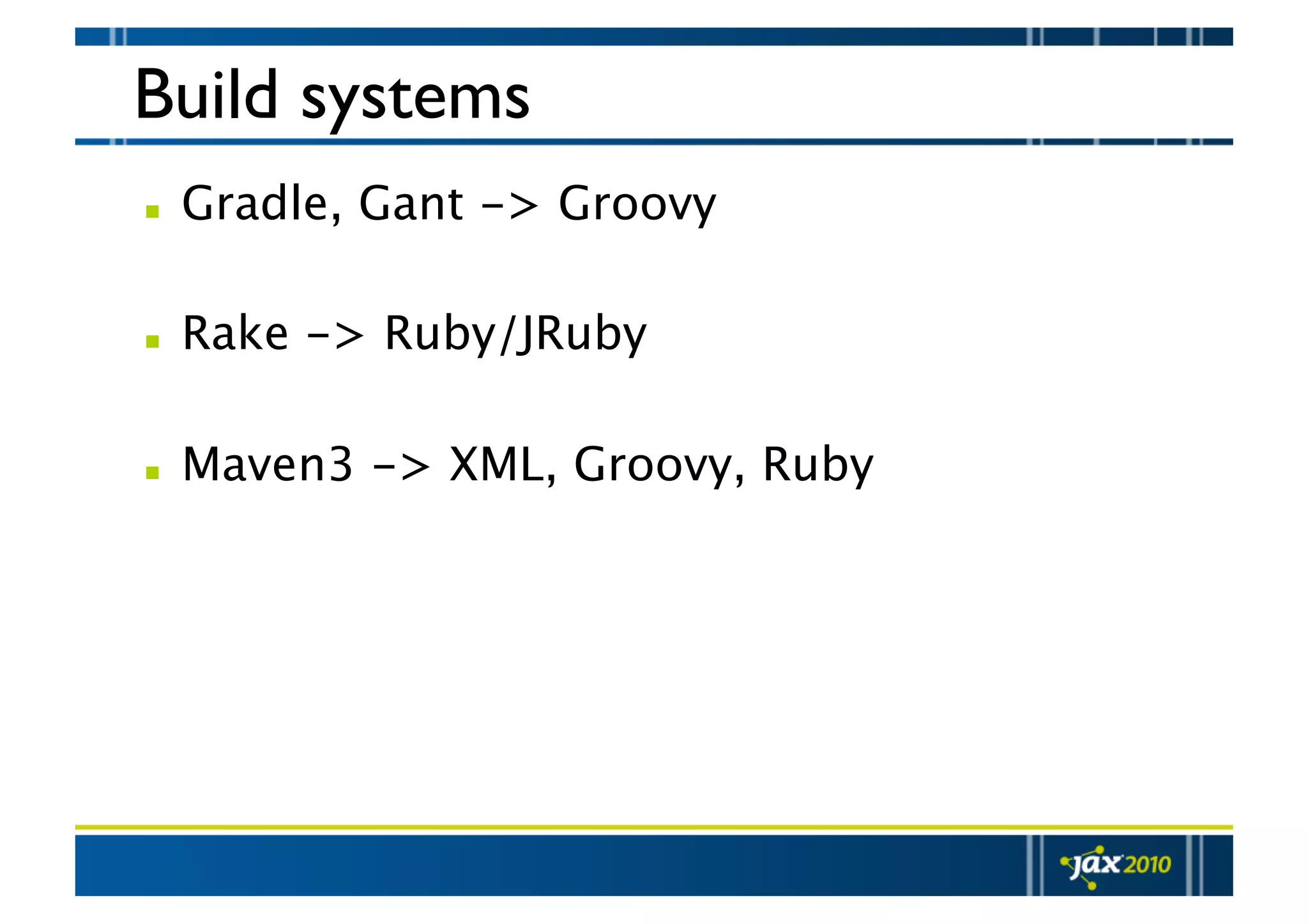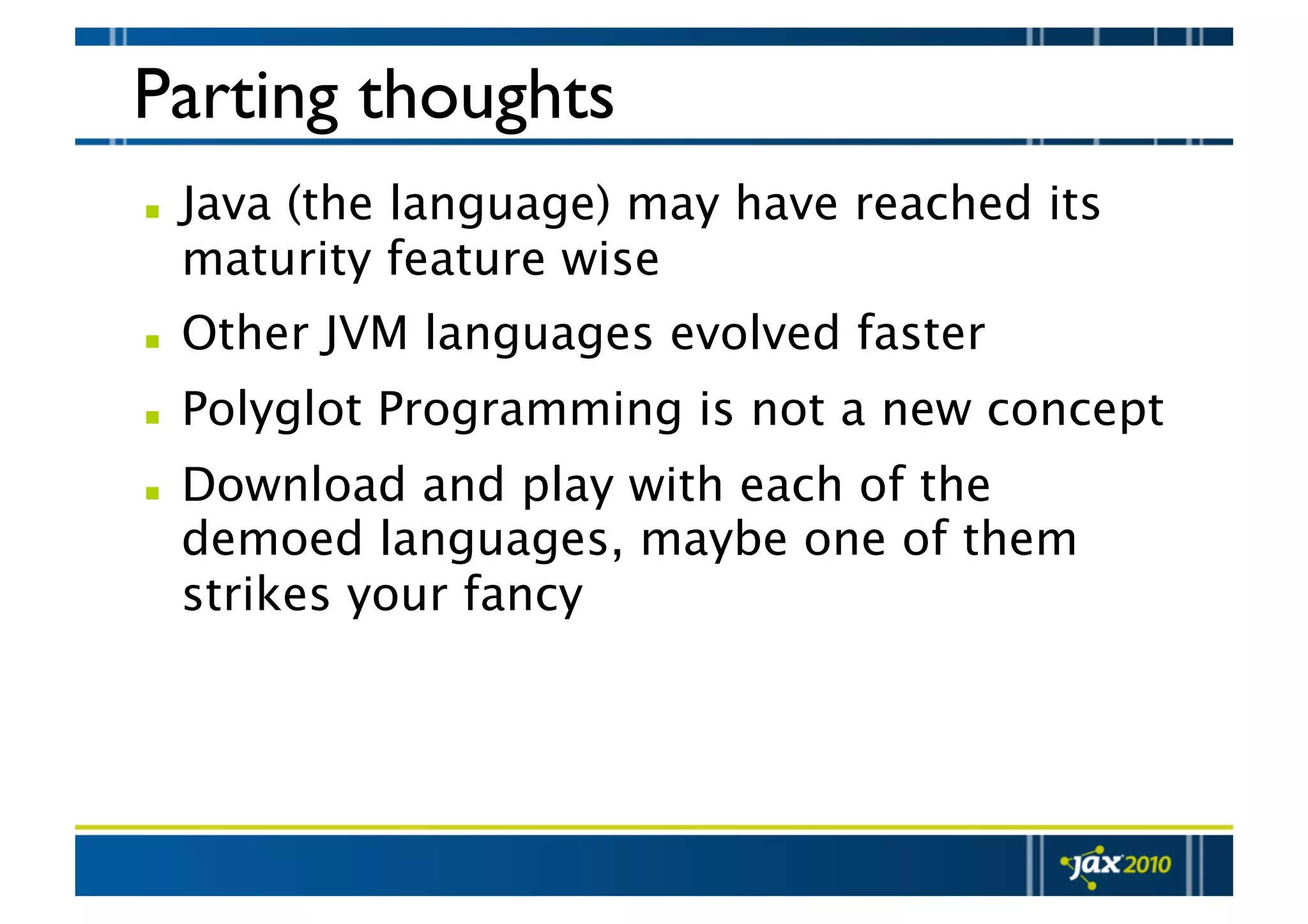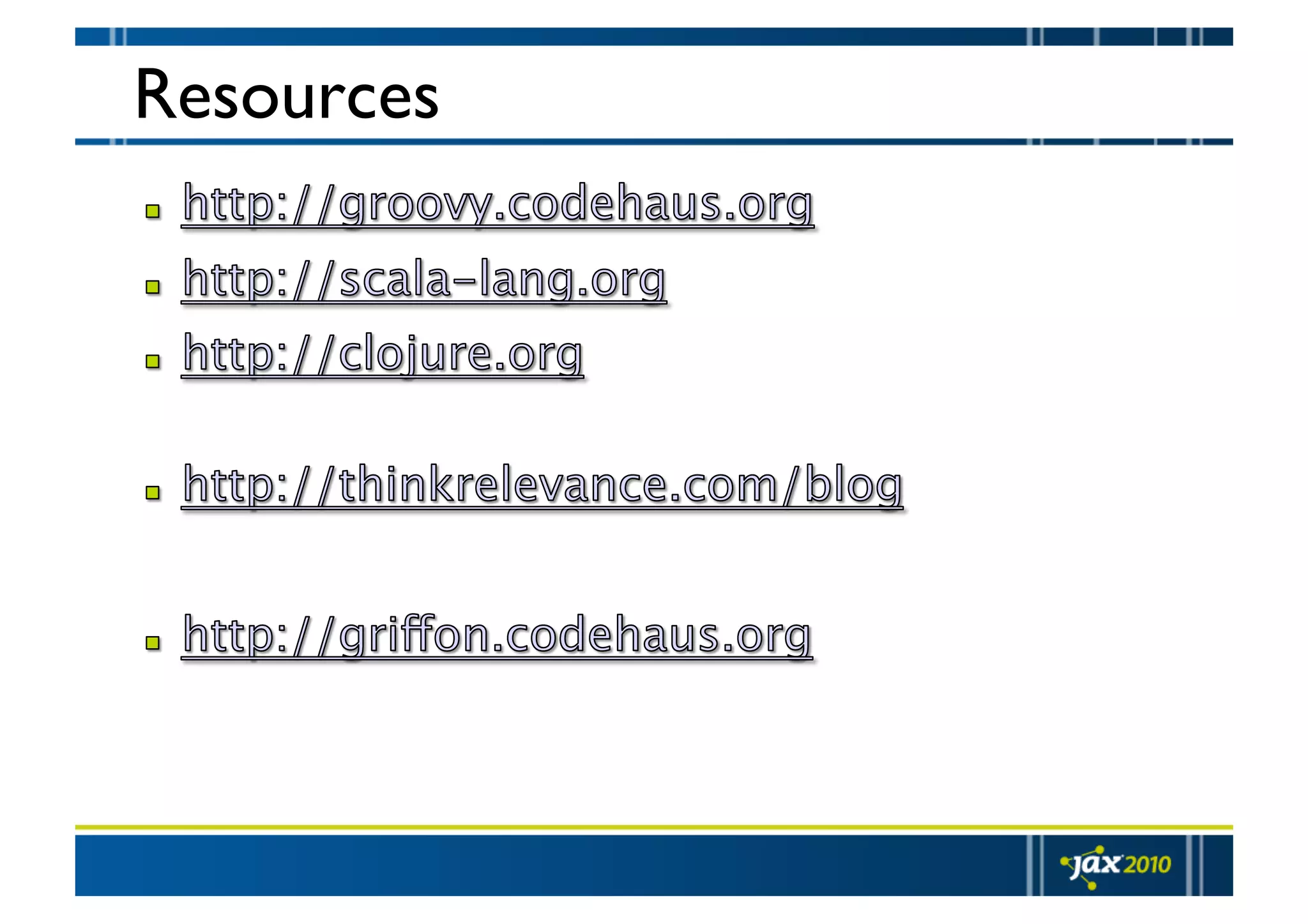The document discusses polyglot programming on the Java Virtual Machine (JVM). It introduces the speaker and provides background on Java. It notes that while Java is mature, other JVM languages like Groovy, Scala, and Clojure have evolved faster with features like closures, pattern matching, and immutability. These languages are highly interoperable with Java and allow for reduced verbosity. The document demonstrates features of these languages and provides examples of domains where polyglot programming is common like web development, next-gen data stores, and build systems. It encourages the audience to try these languages on the JVM.
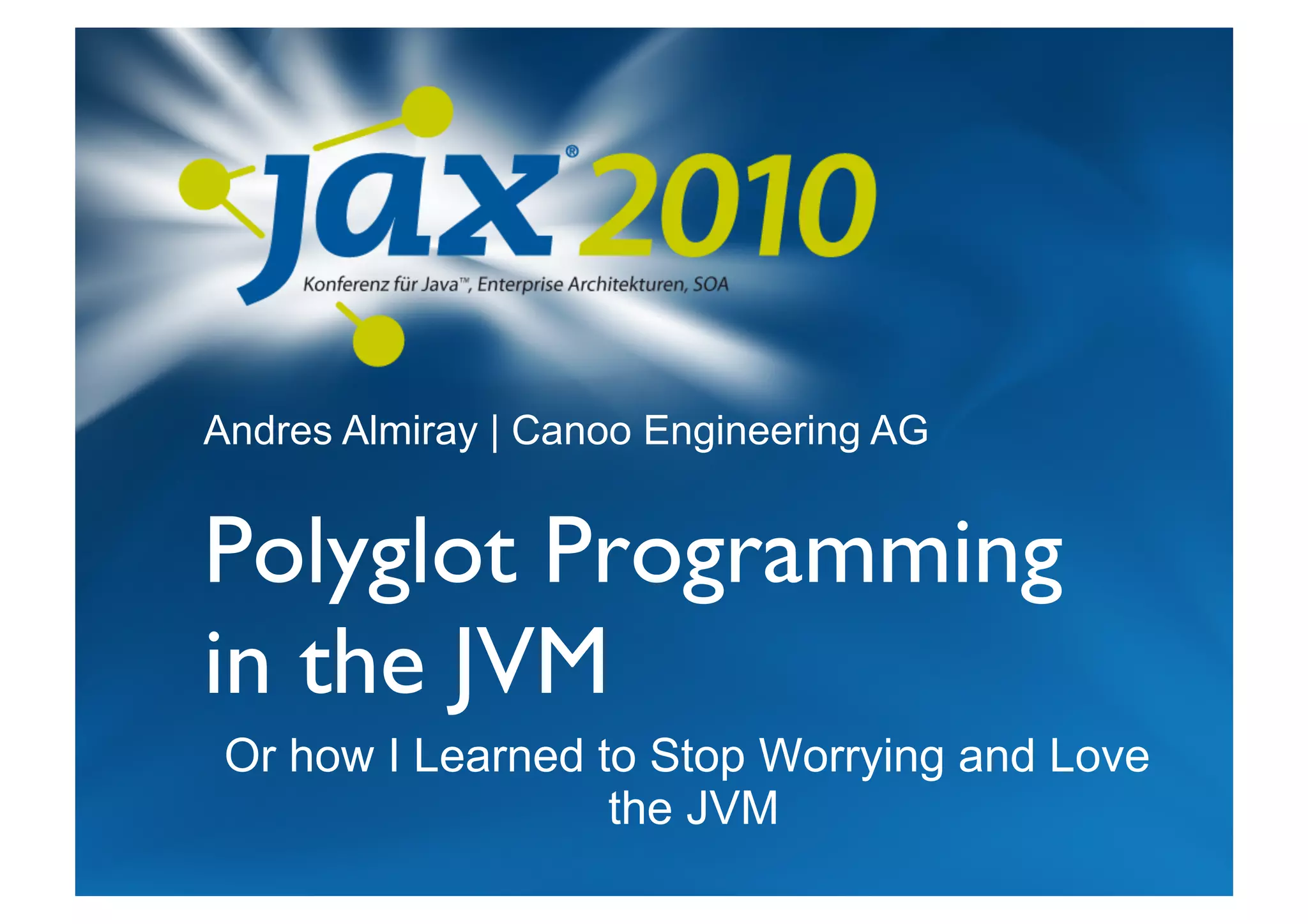
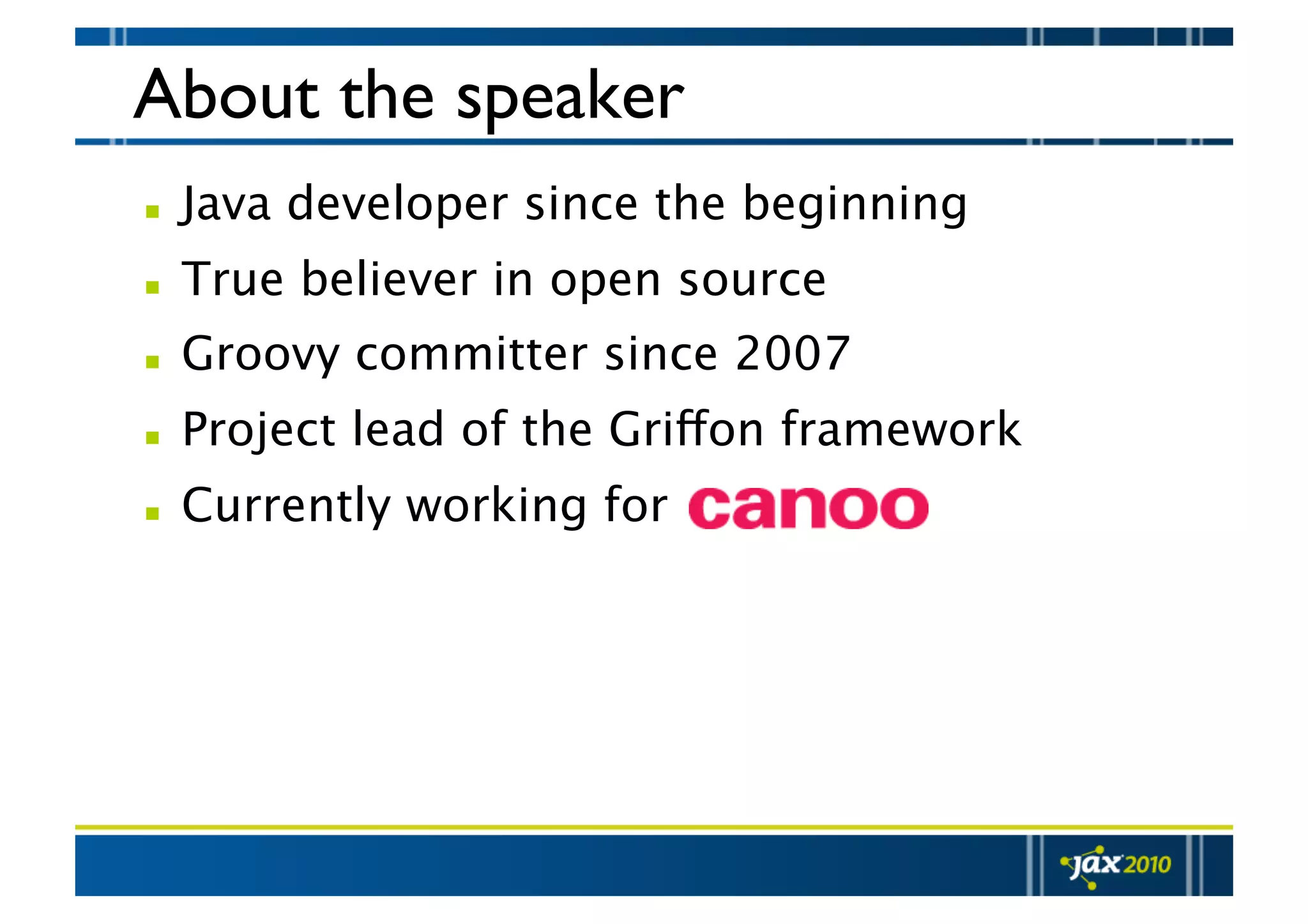
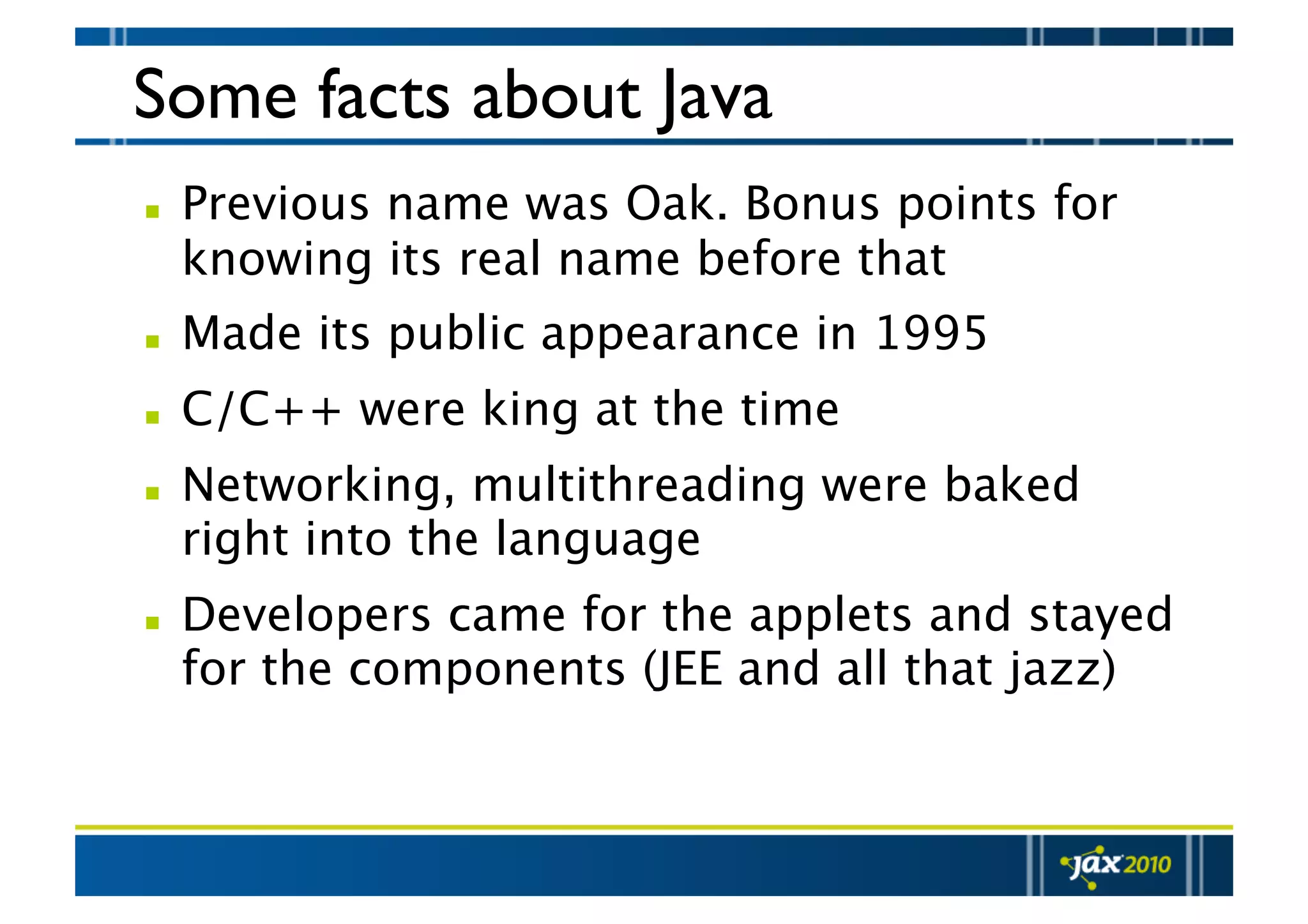
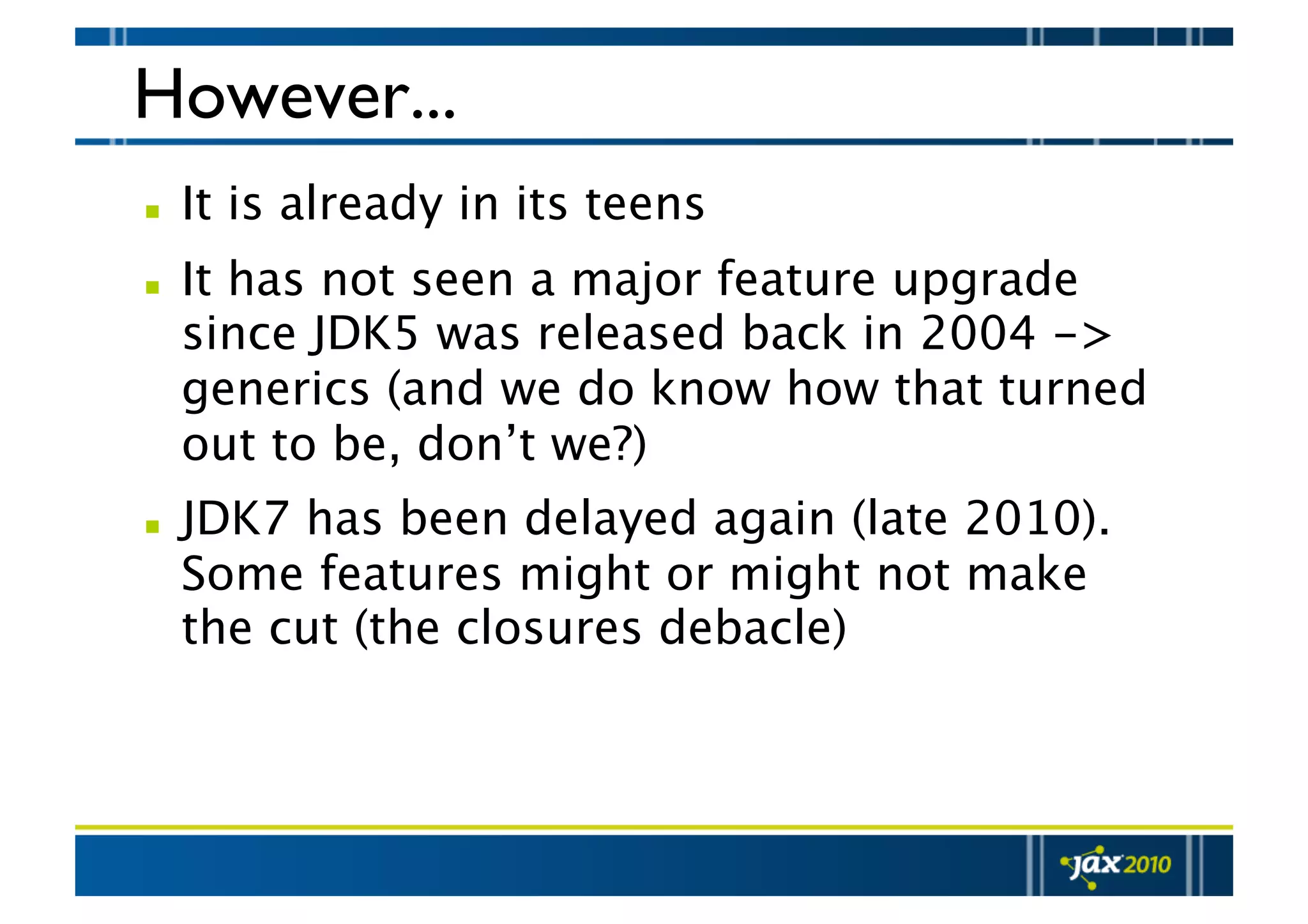
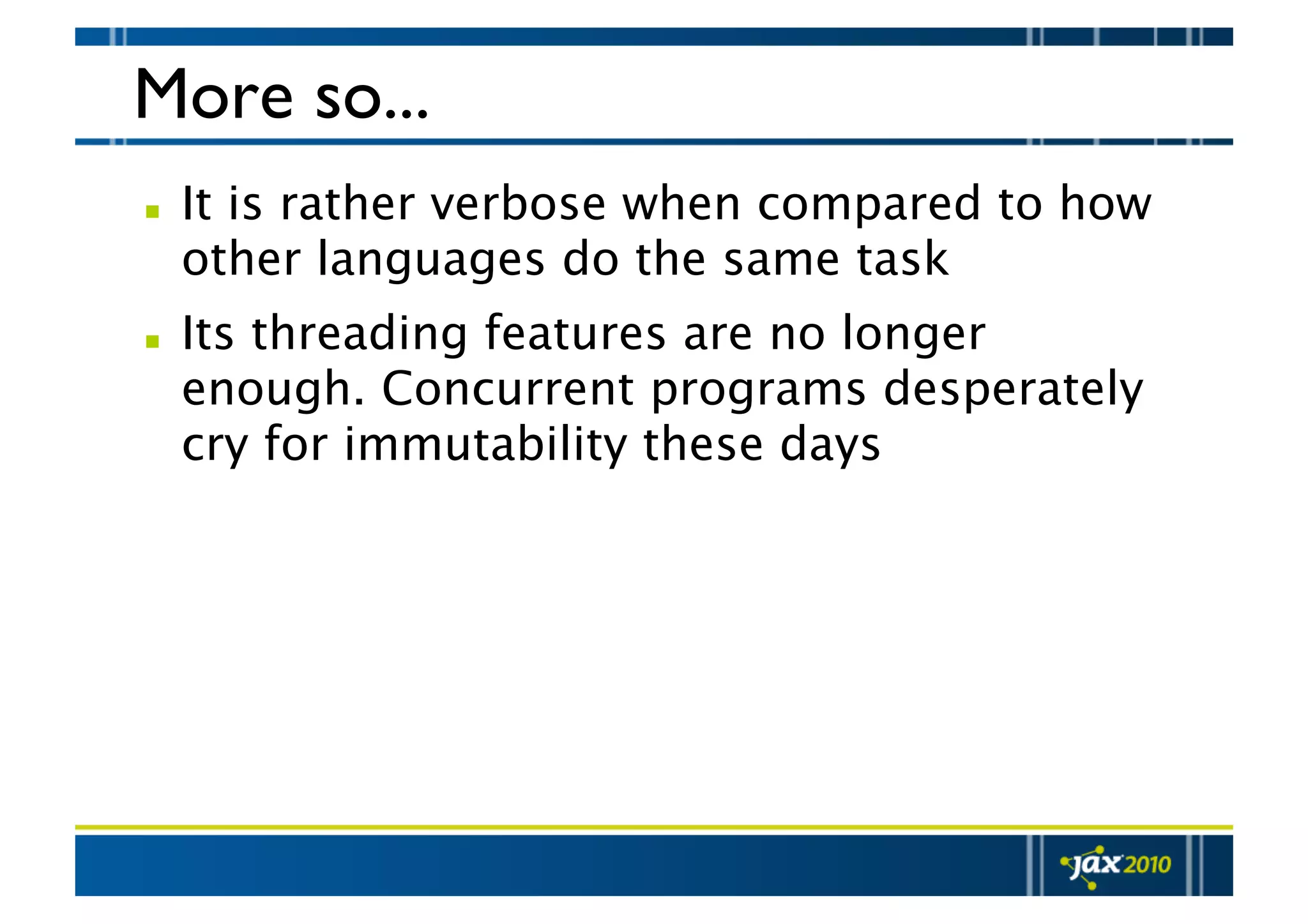
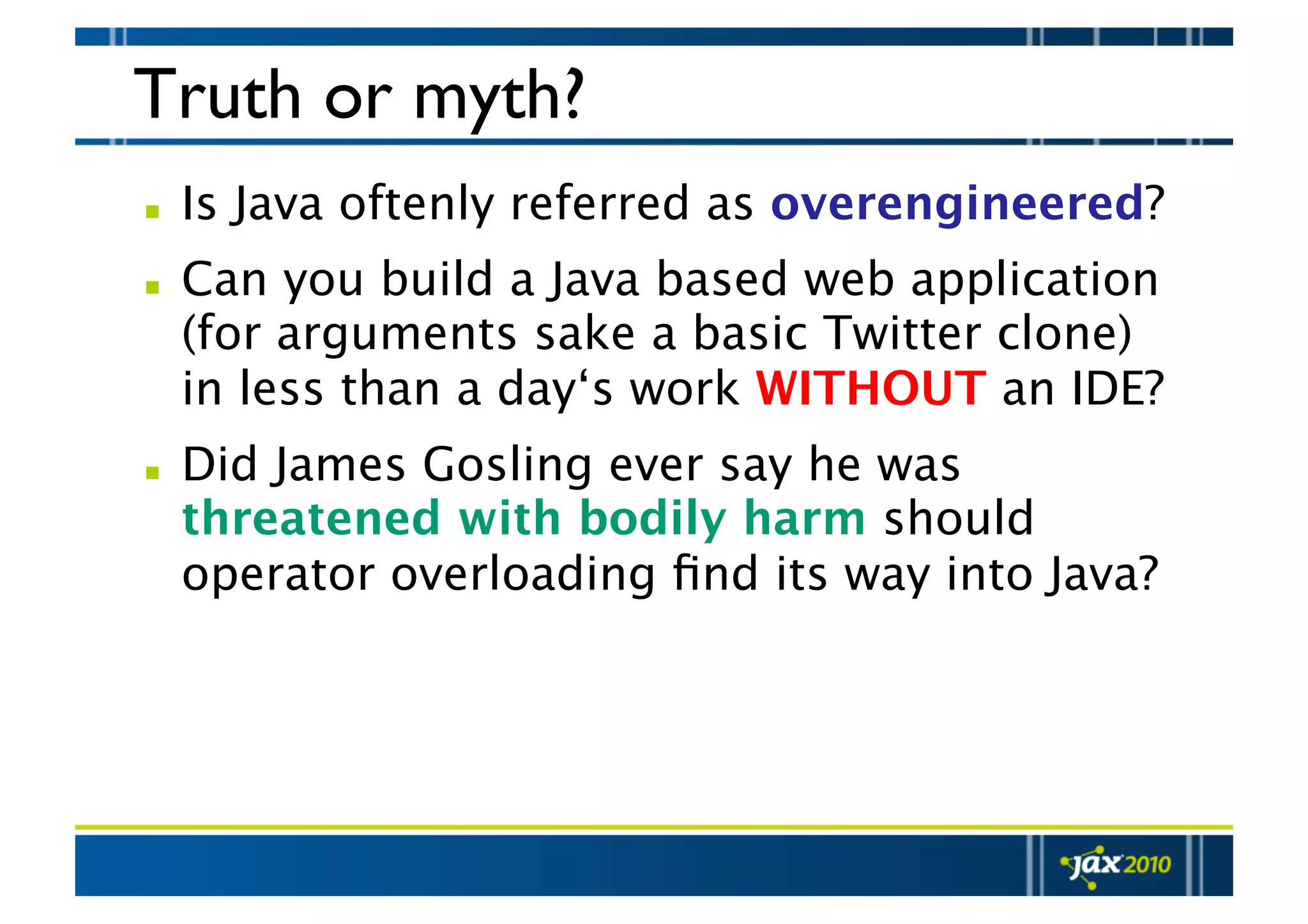
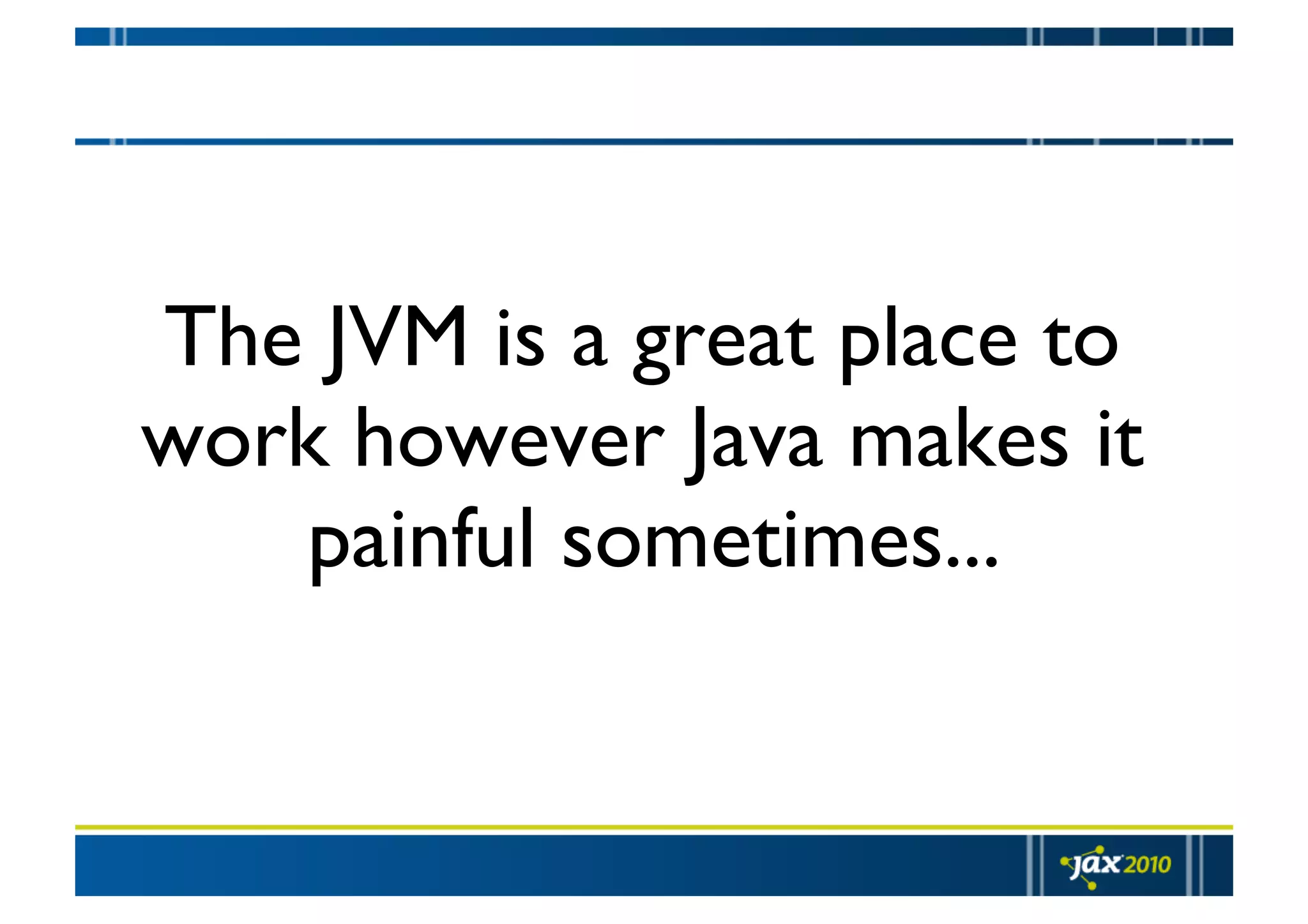
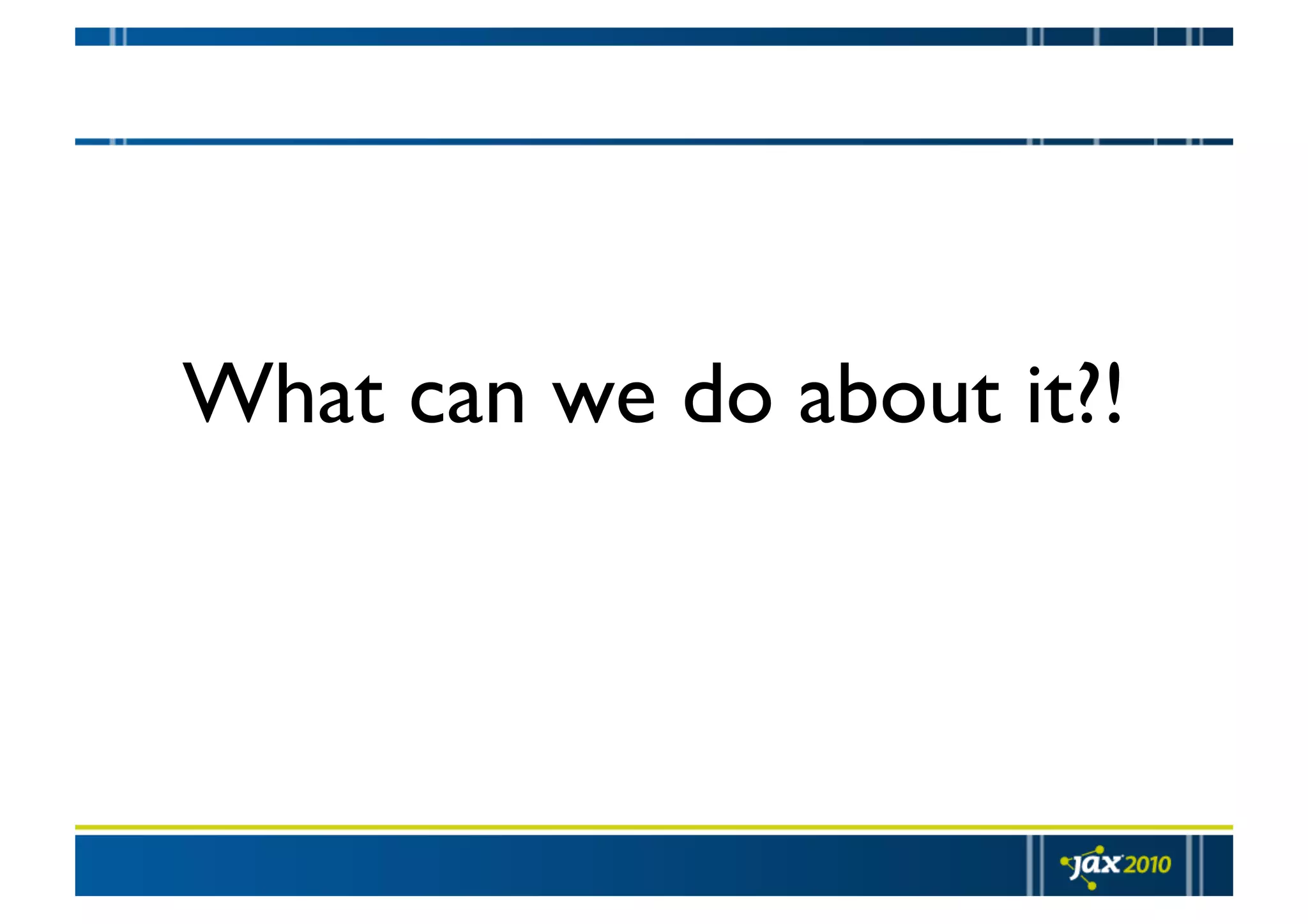
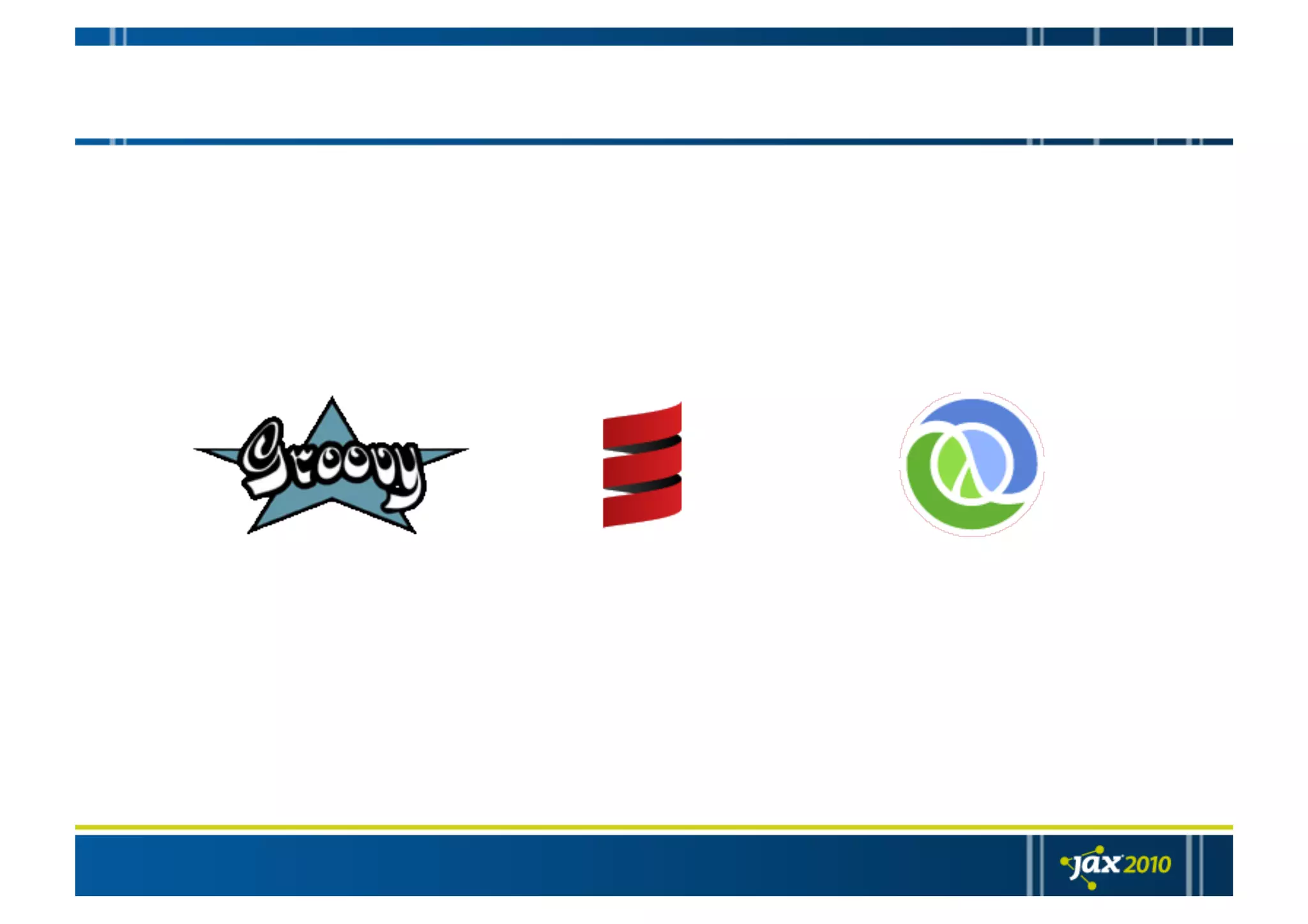
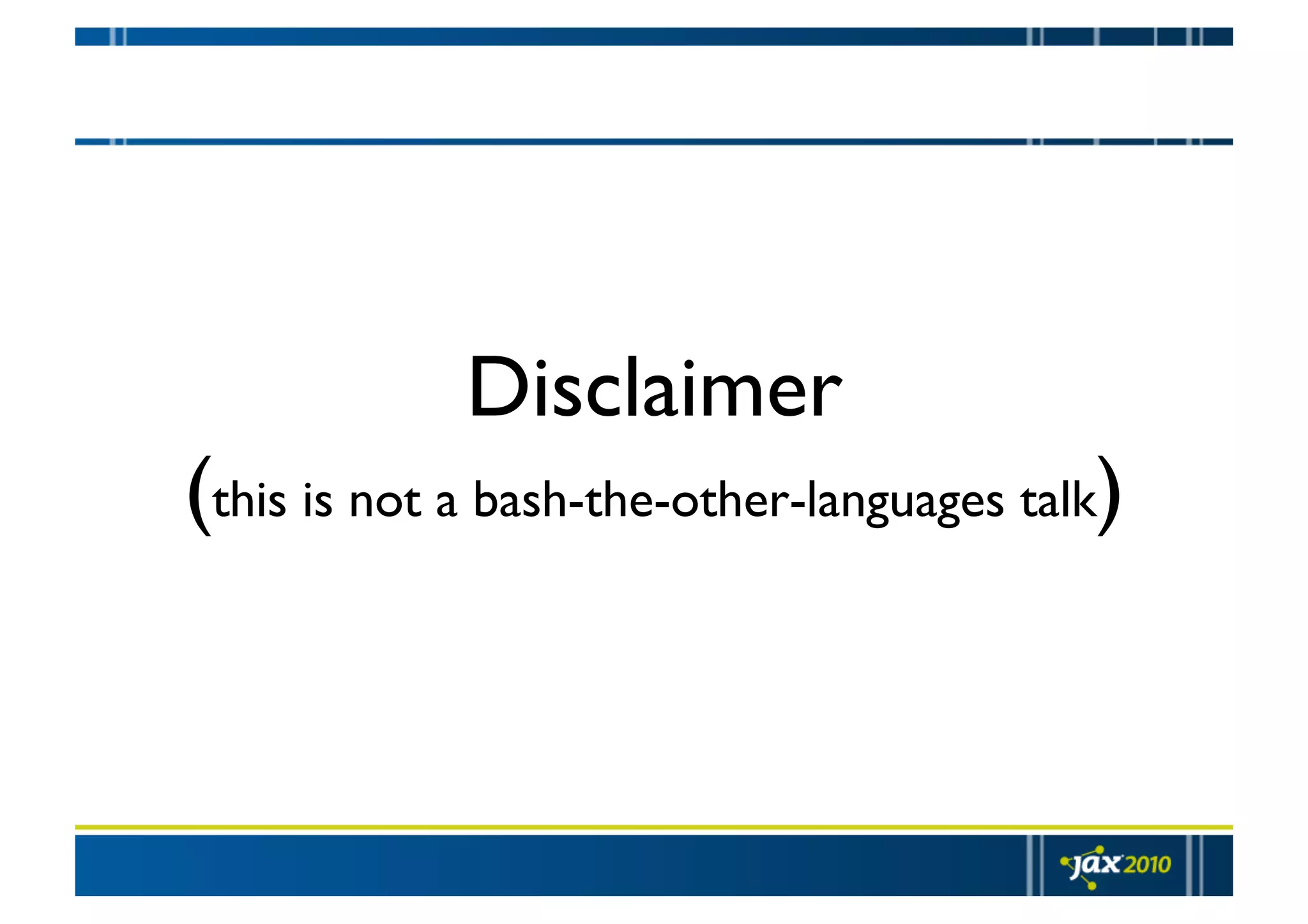
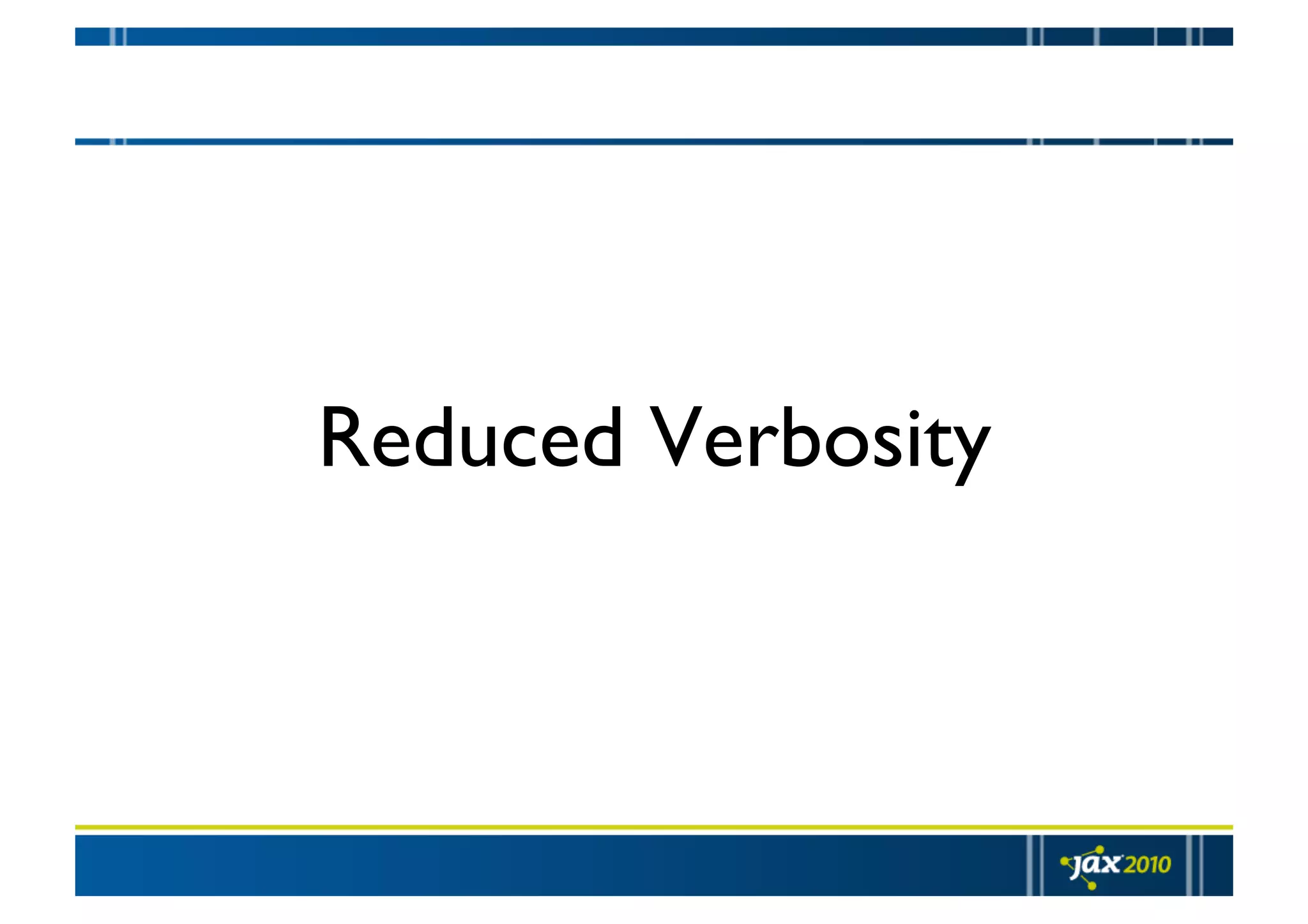
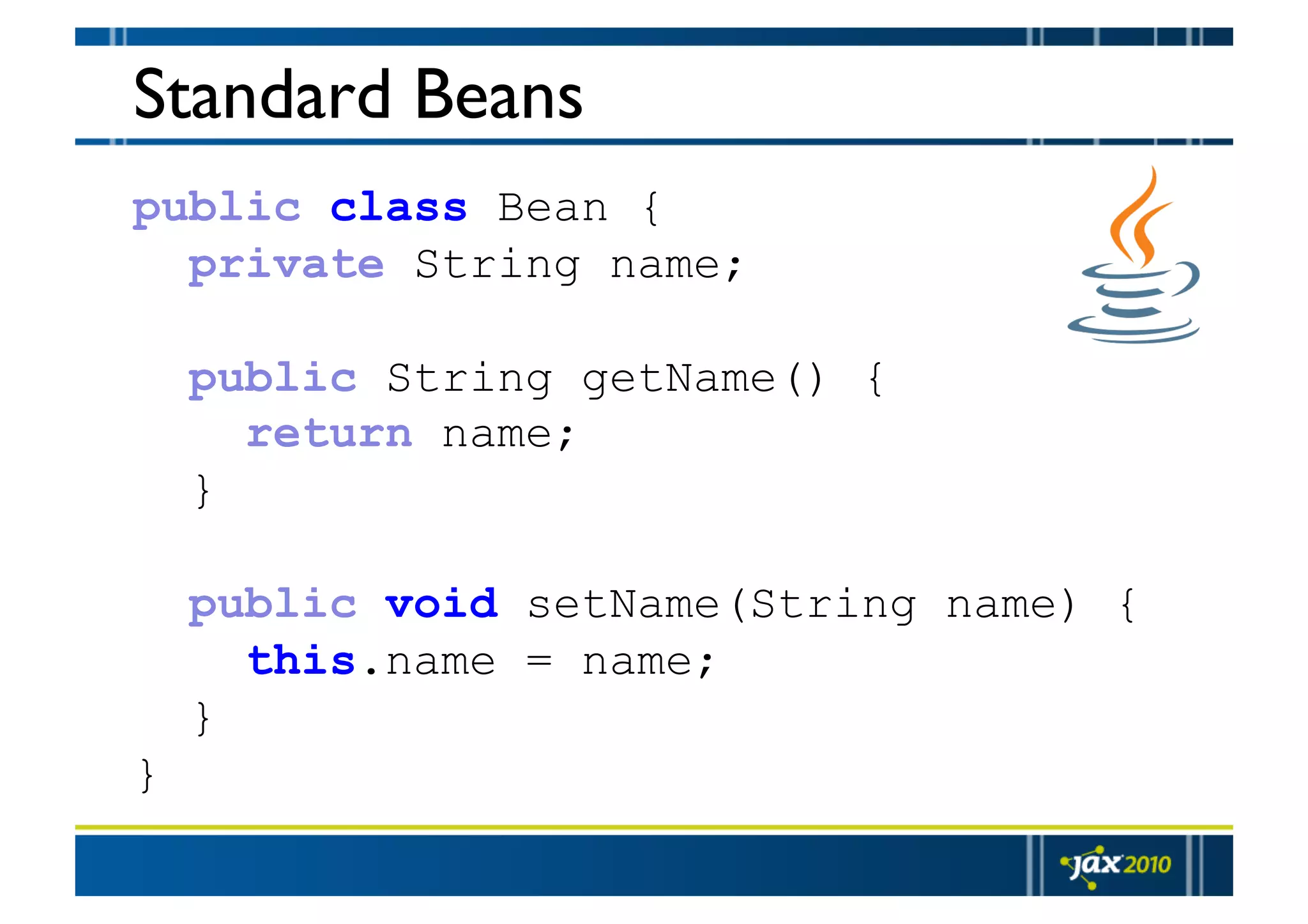
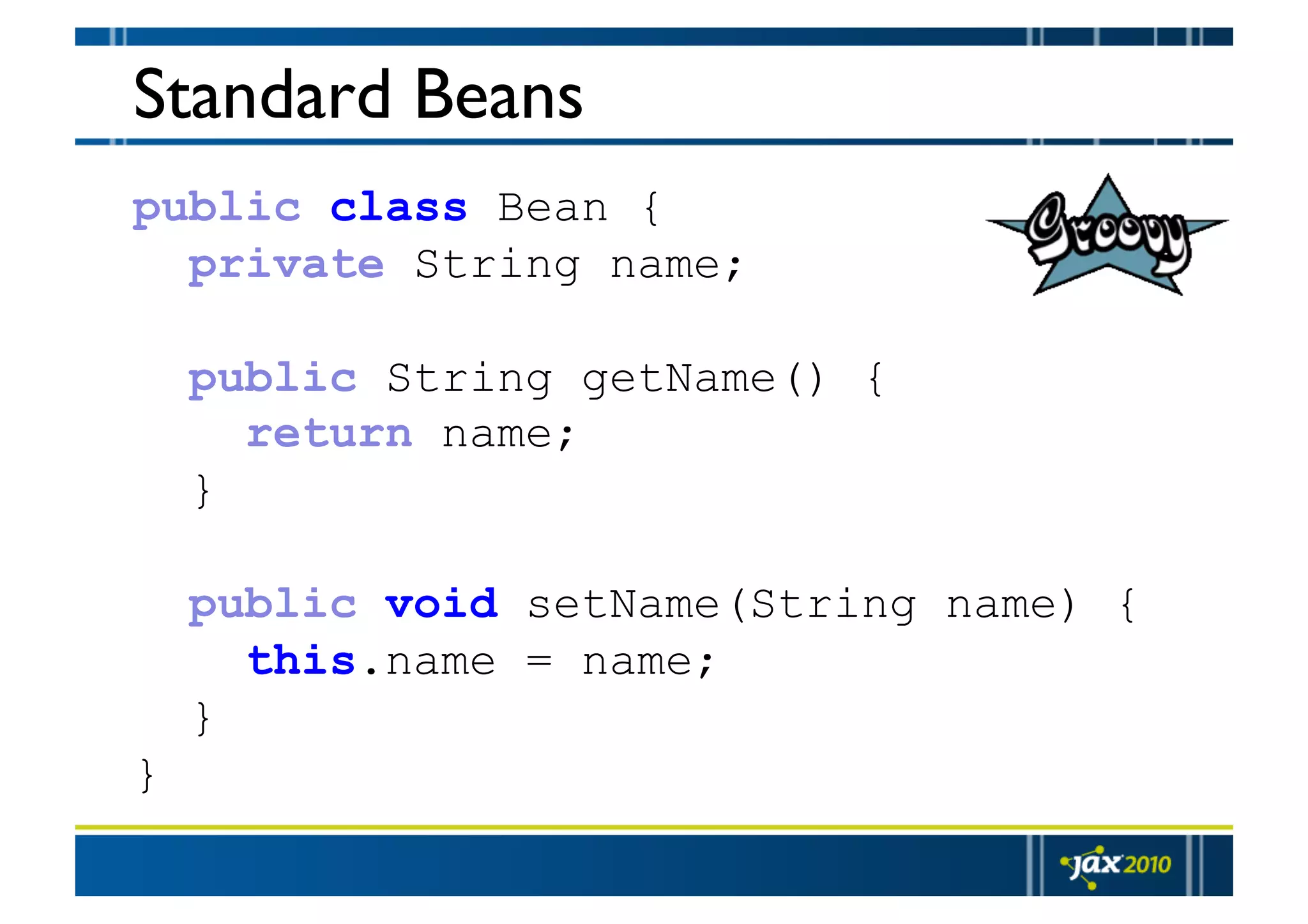
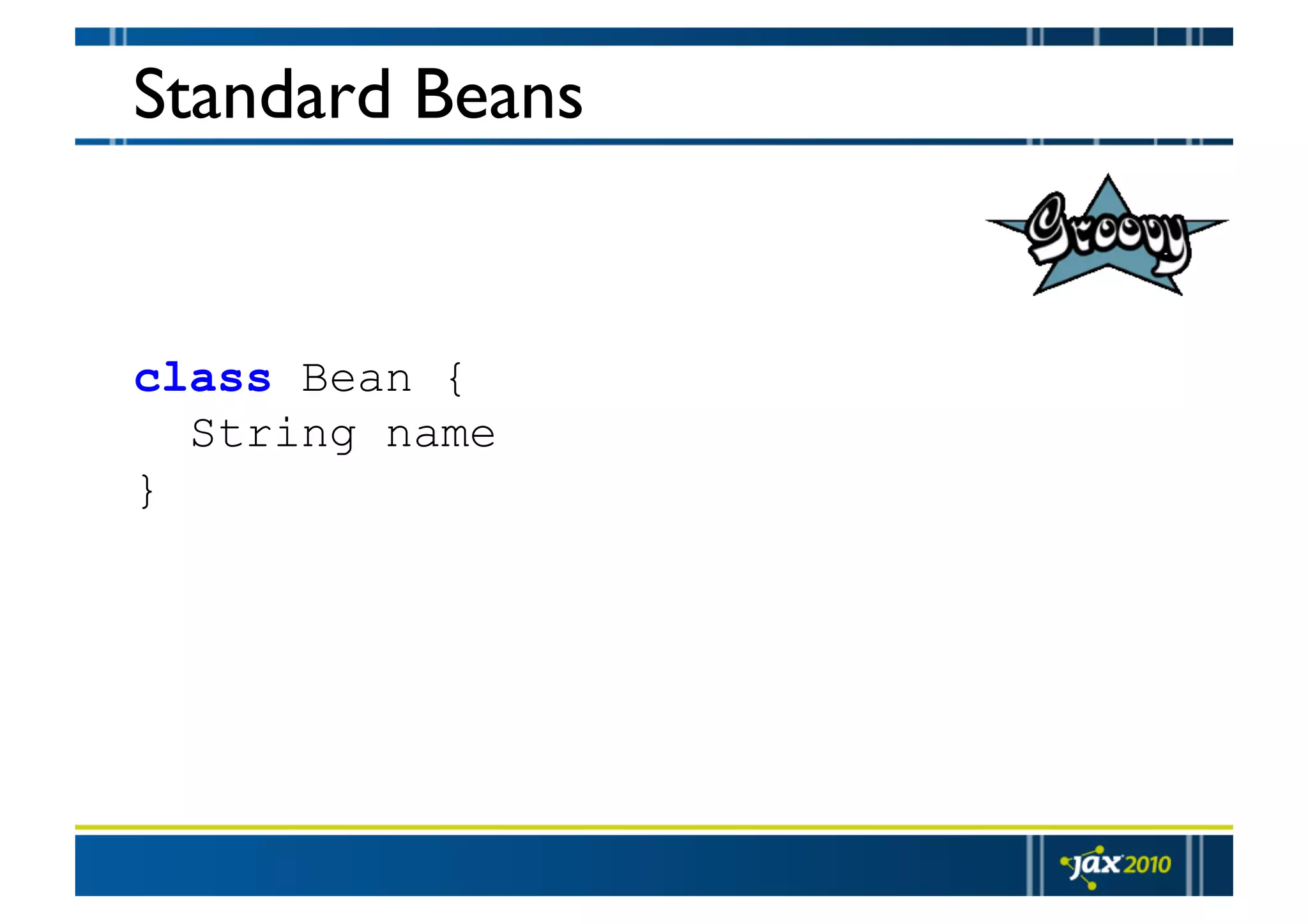
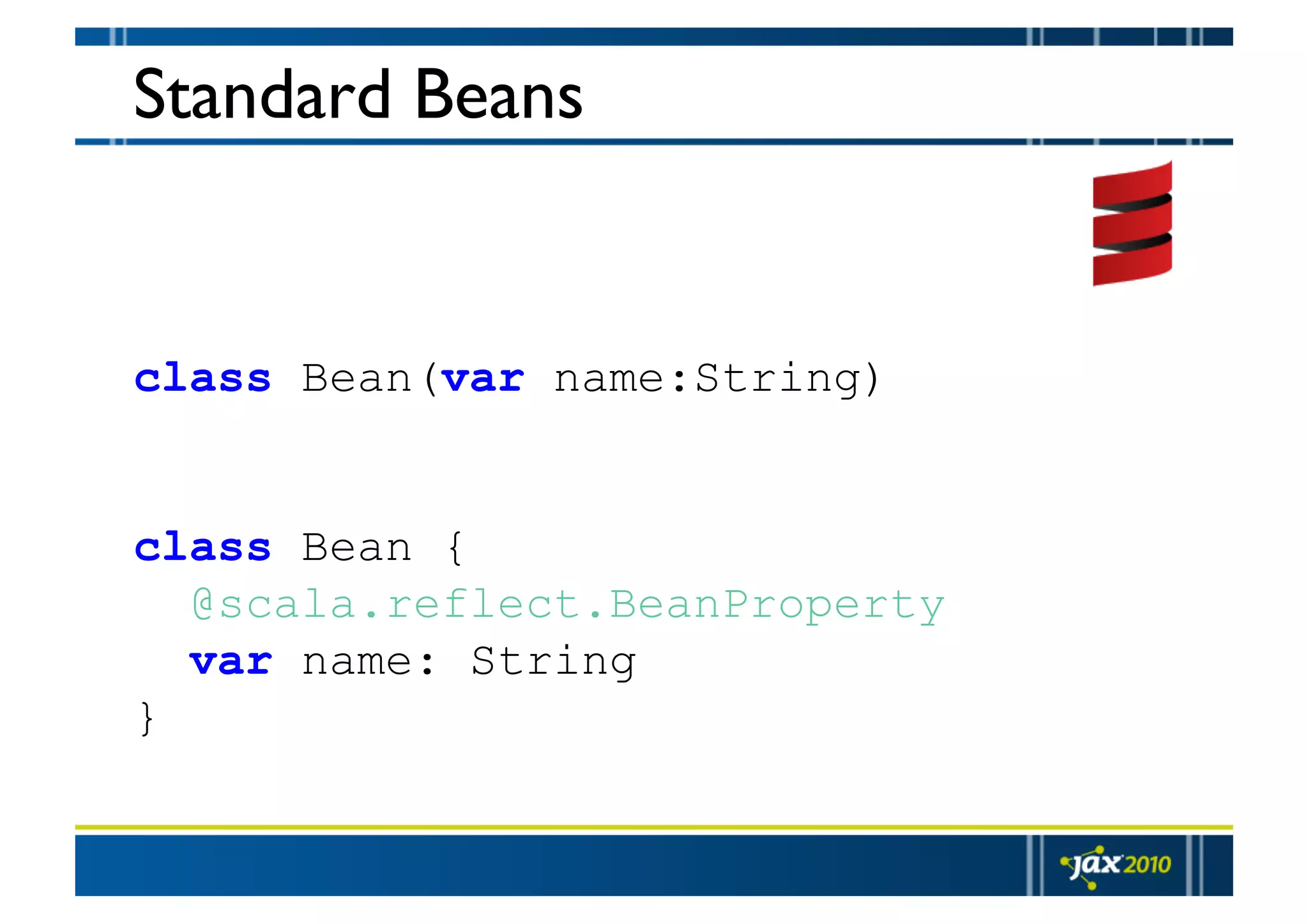
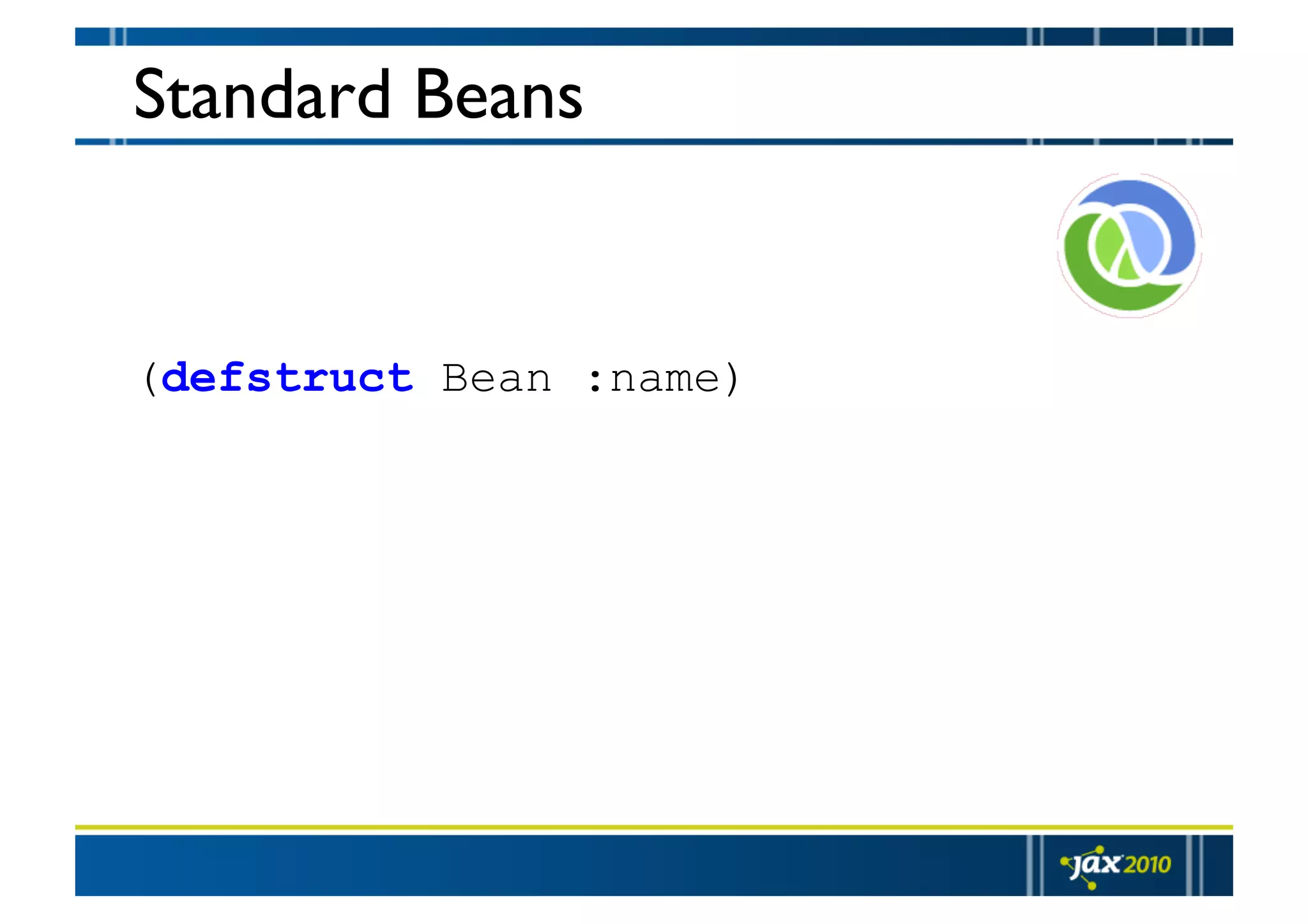
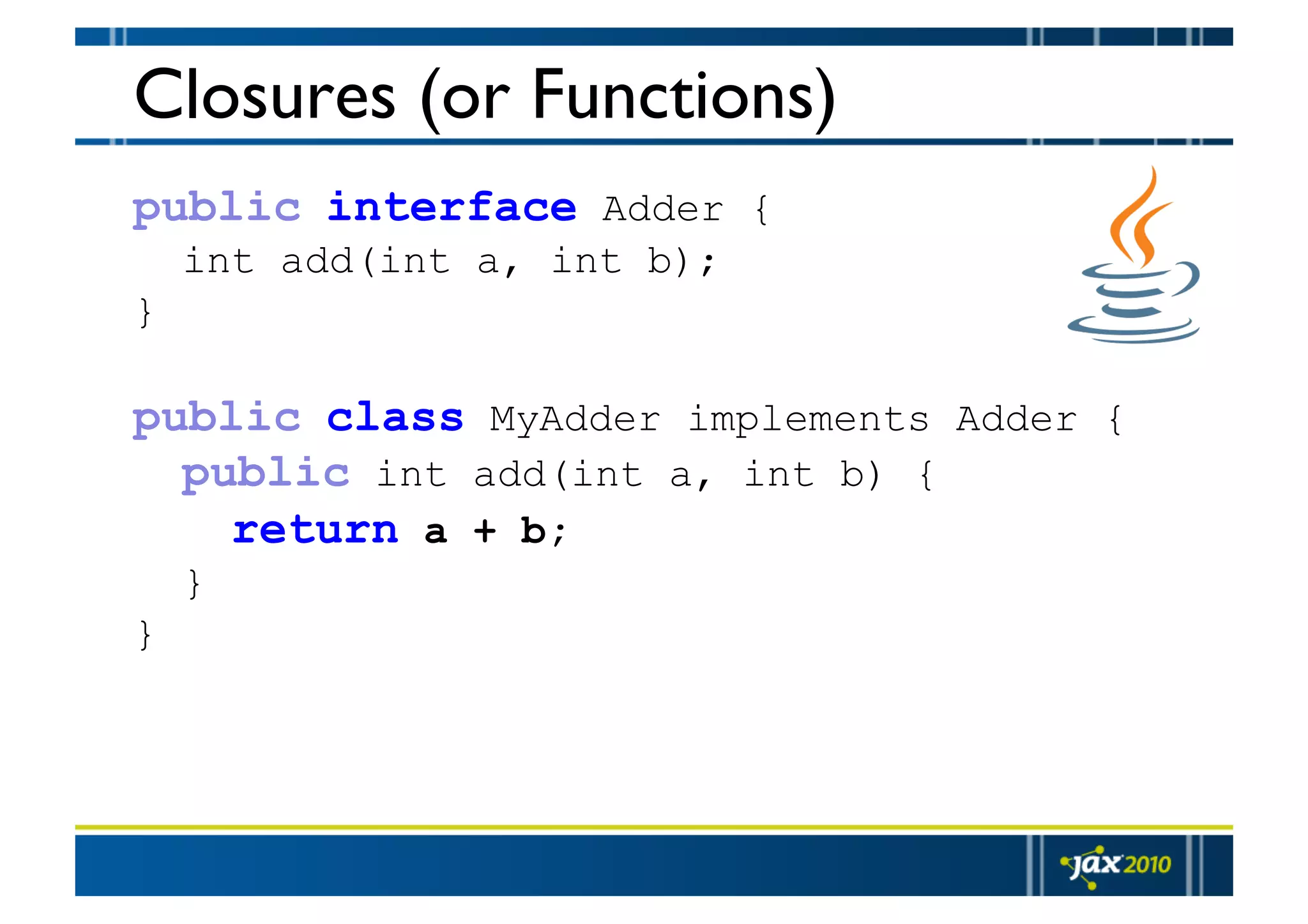
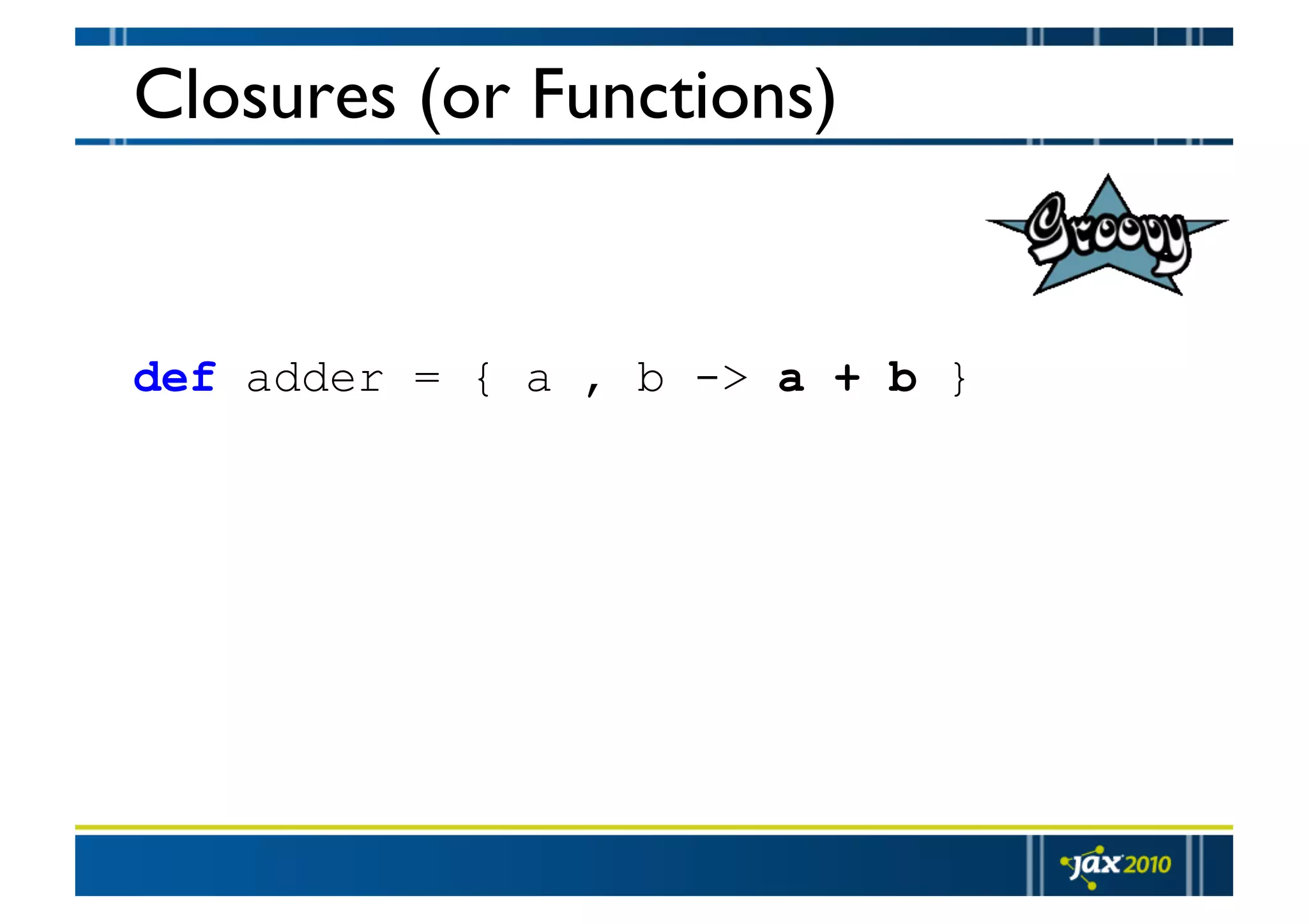
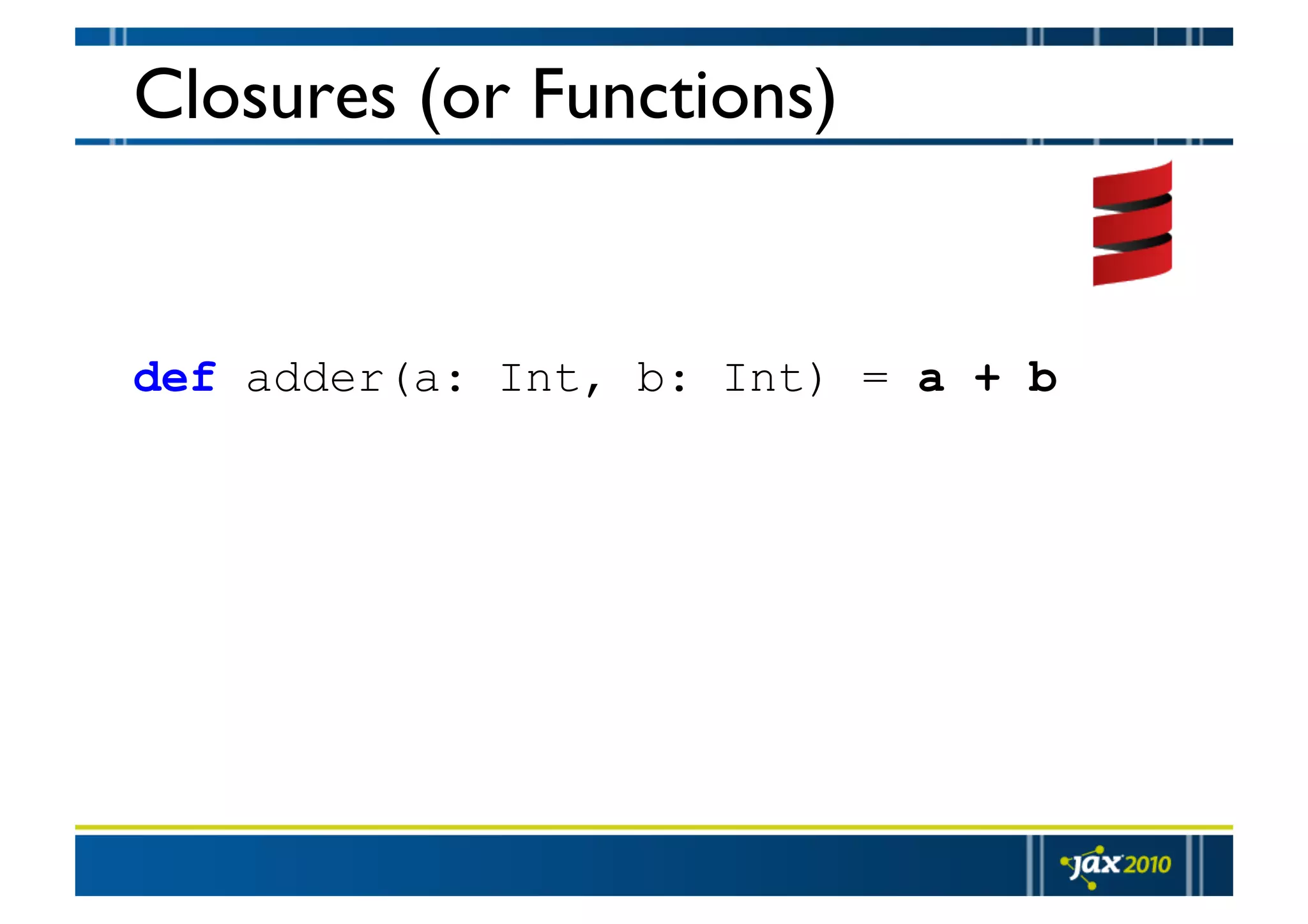
![Closures (or Functions) (defn adder [a b] (+ a b))](https://image.slidesharecdn.com/jax10polyglotprogramming-100510032226-phpapp01/75/Polyglot-Programming-Jax-de-2010-20-2048.jpg)
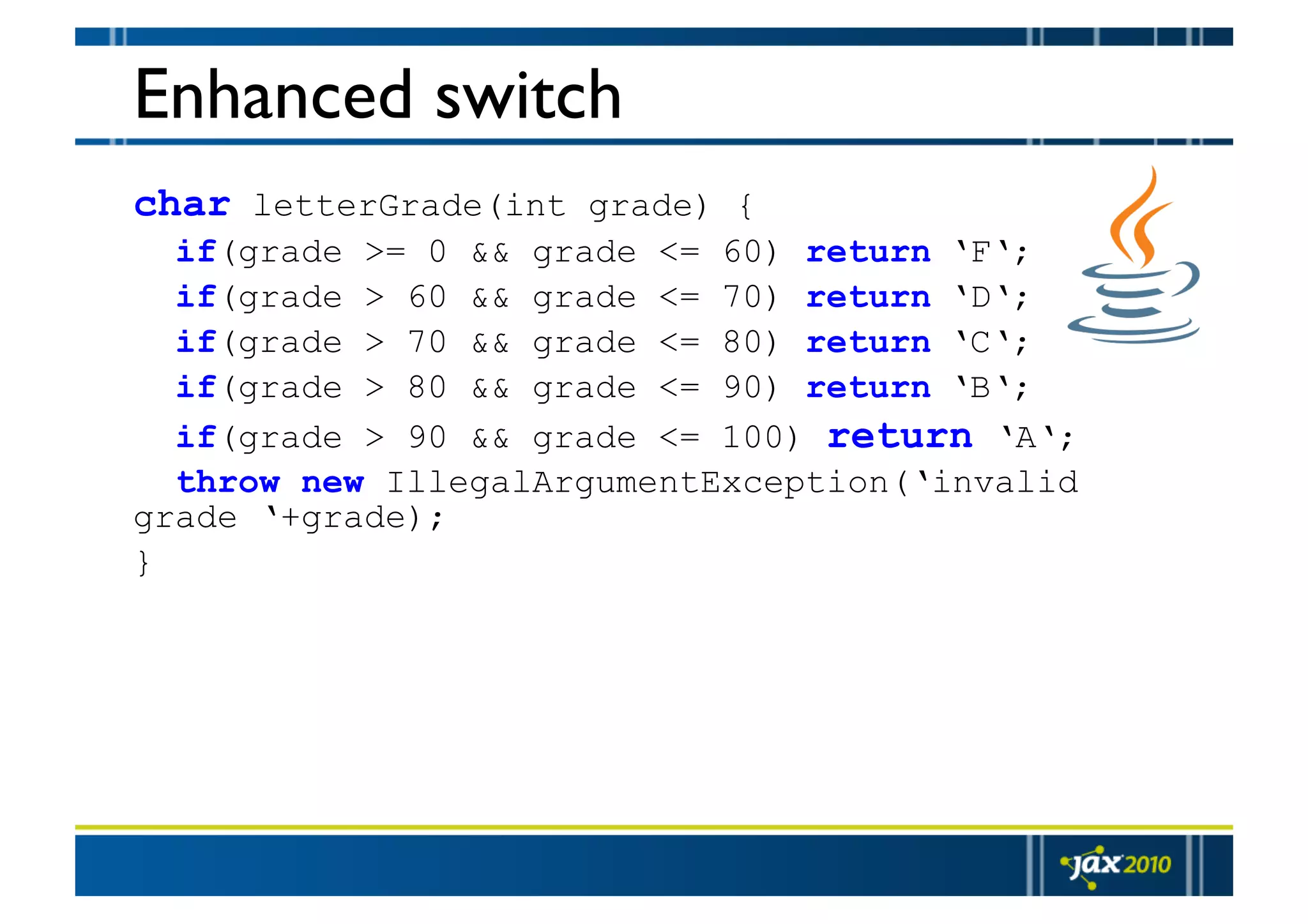
![Enhanced Switch def letterGrade(grade) { switch(grade) { case 90..100: return ‘A‘ case 80..<90: return ‘B‘ case 70..<80: return ‘C‘ case 60..<70: return ‘D‘ case 0..<60: return ‘F‘ case ~"[ABCDFabcdf]": return grade.toUpperCase() } throw new IllegalArgumentException (‘invalid grade ‘+grade) }](https://image.slidesharecdn.com/jax10polyglotprogramming-100510032226-phpapp01/75/Polyglot-Programming-Jax-de-2010-22-2048.jpg)
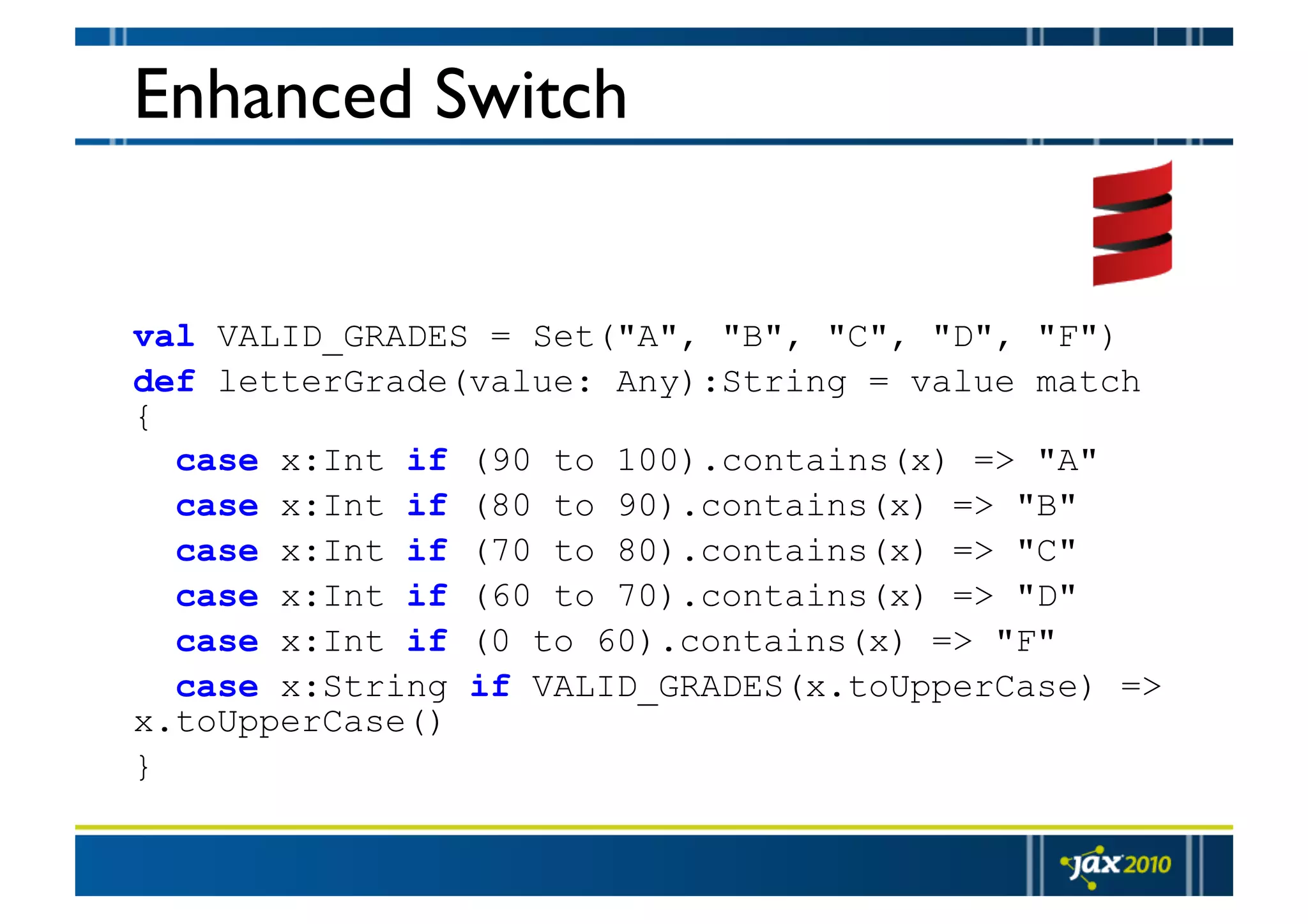
![Enhanced Switch (defn letter-grade [grade] (cond (in grade 90 100) "A" (in grade 80 90) "B" (in grade 70 80) "C" (in grade 60 70) "D" (in grade 0 60) "F" (re-find #"[ABCDFabcdf]" grade) (.toUpperCase grade)))](https://image.slidesharecdn.com/jax10polyglotprogramming-100510032226-phpapp01/75/Polyglot-Programming-Jax-de-2010-24-2048.jpg)
